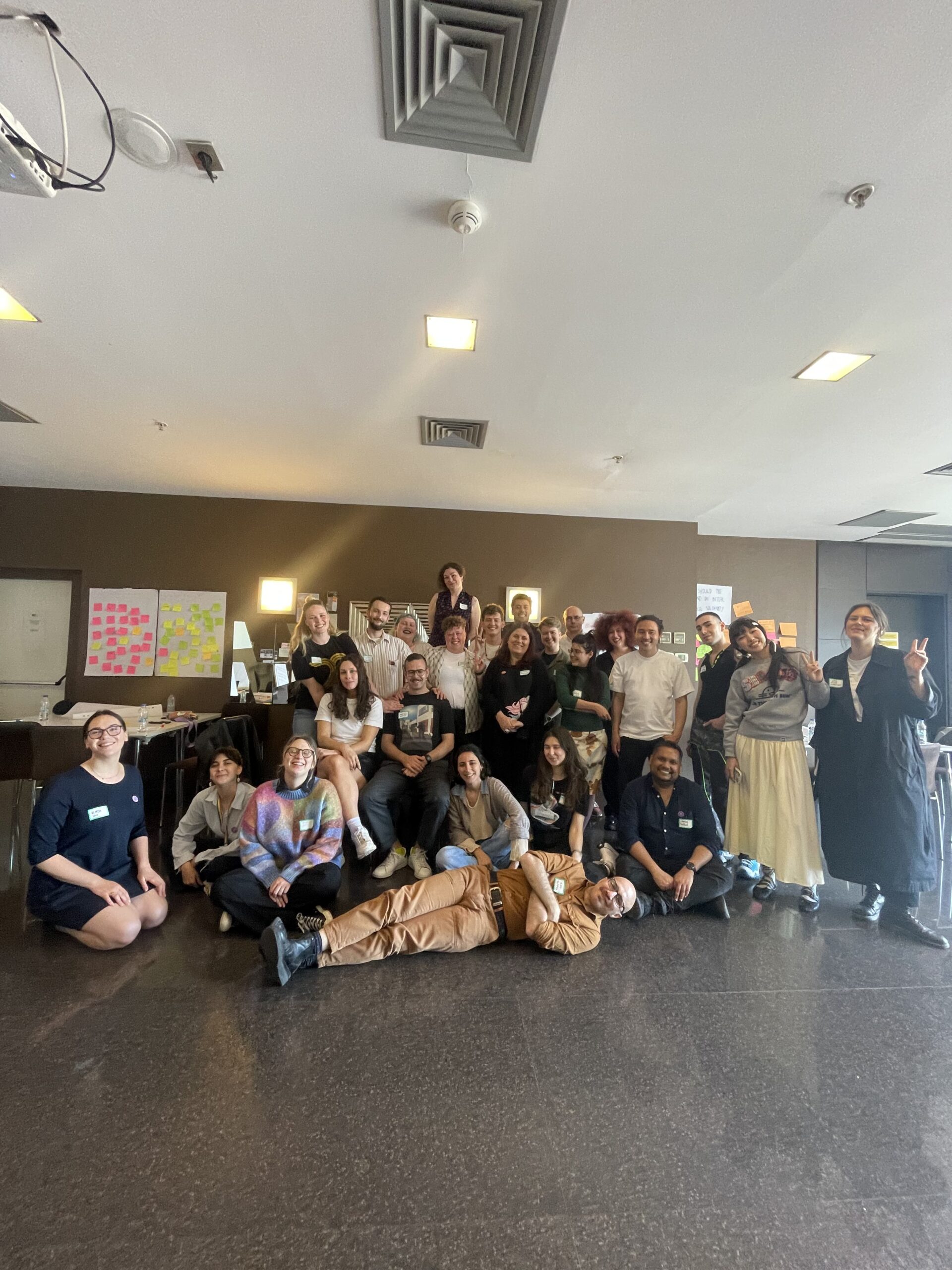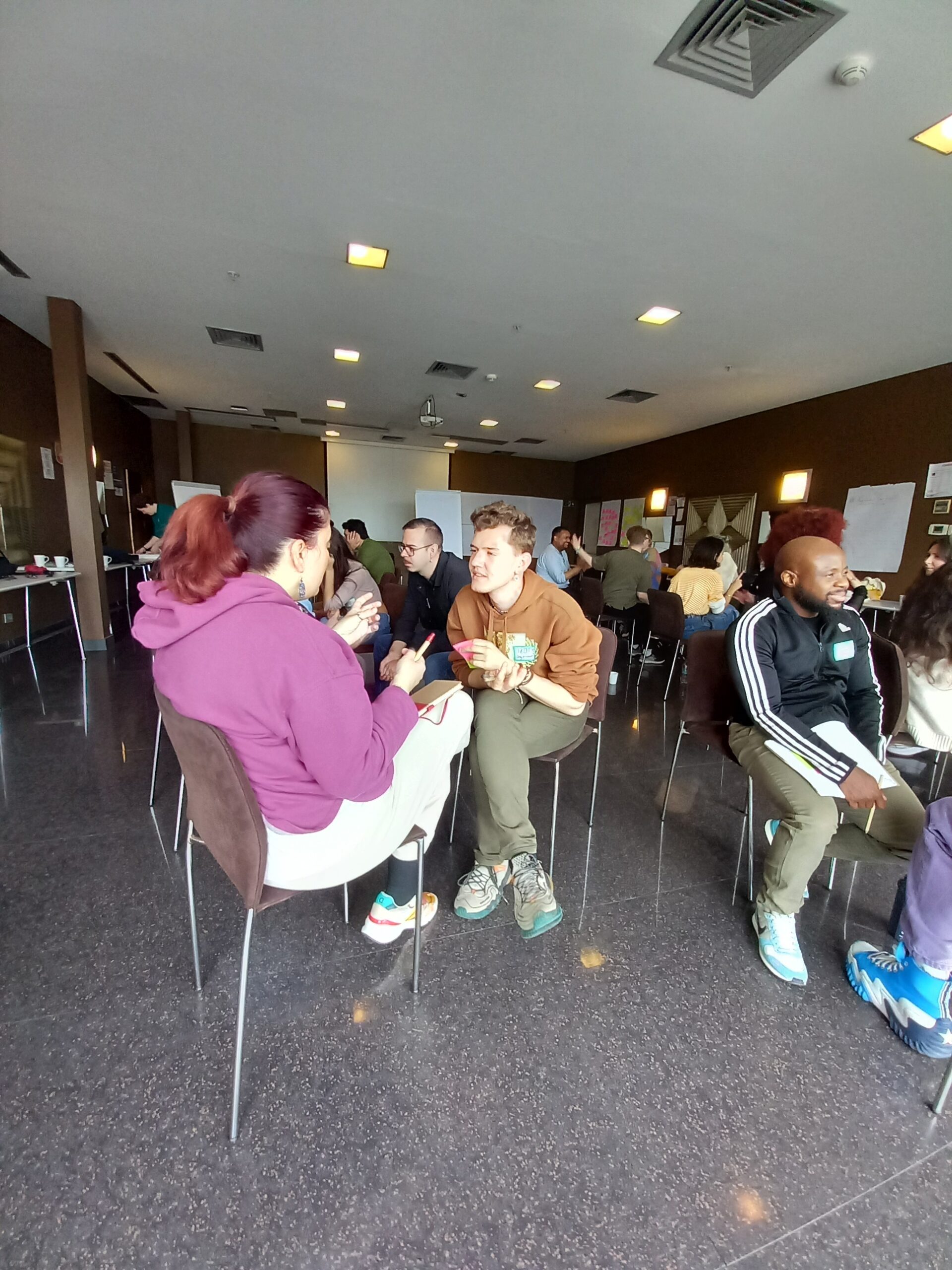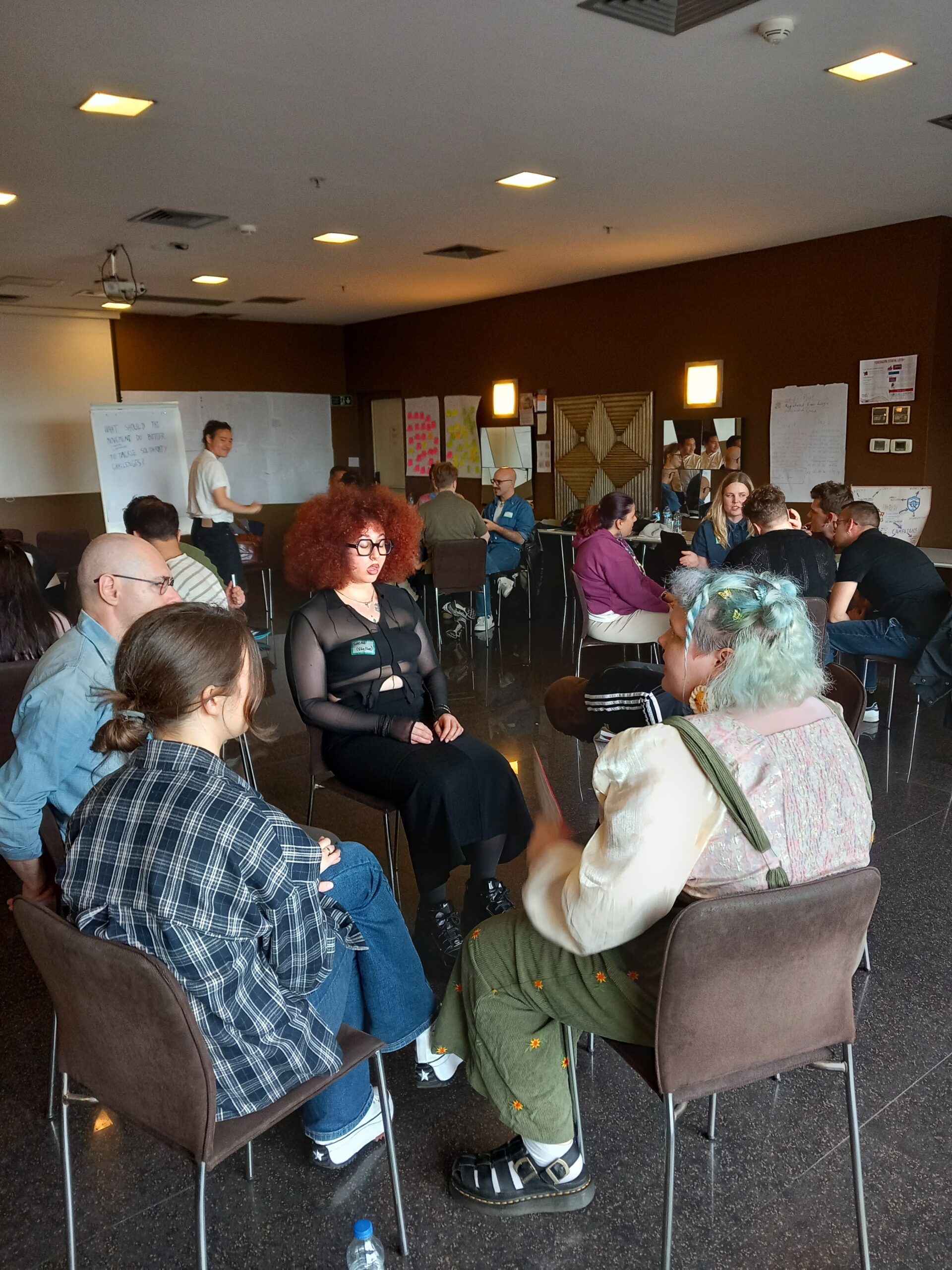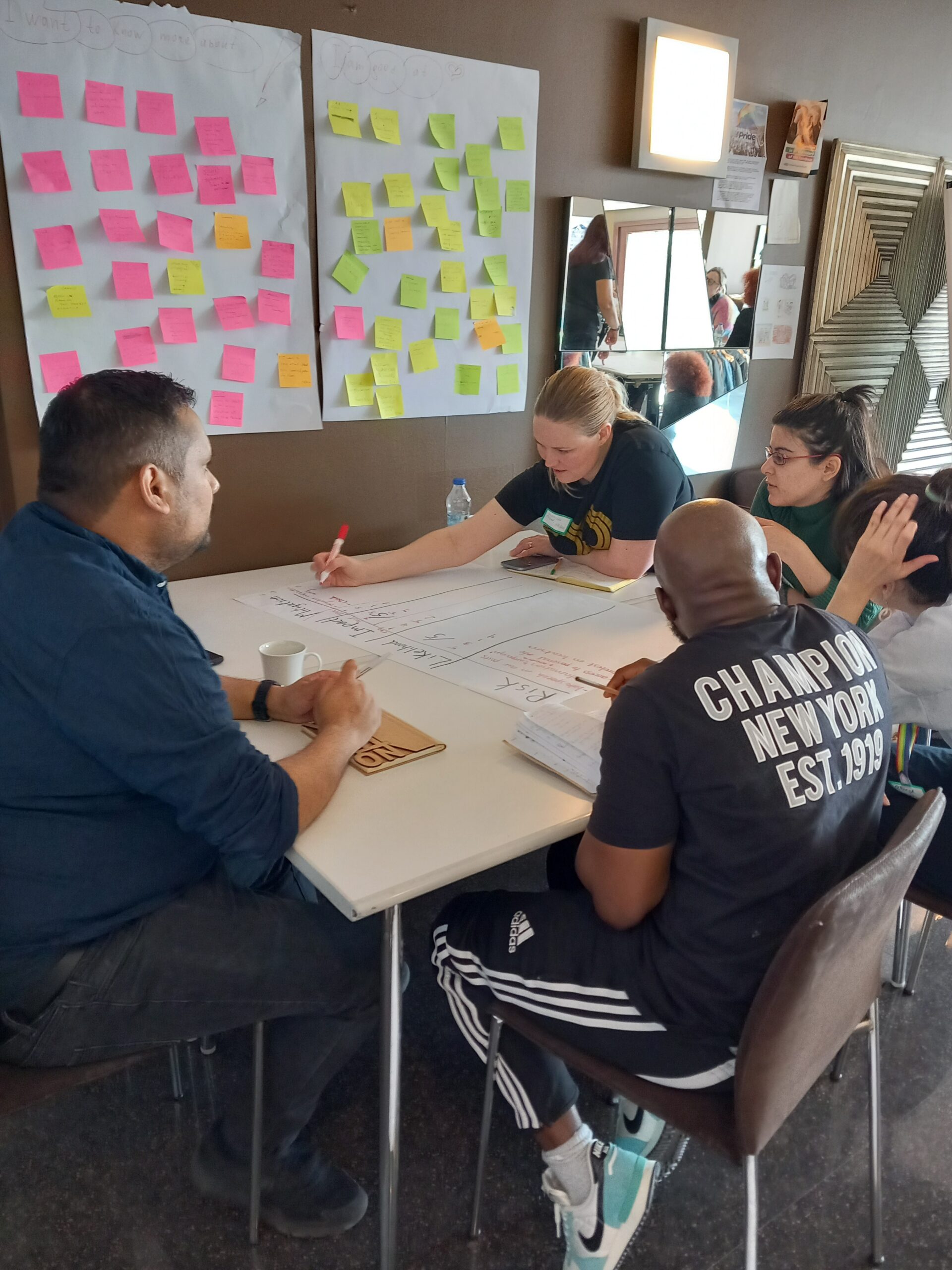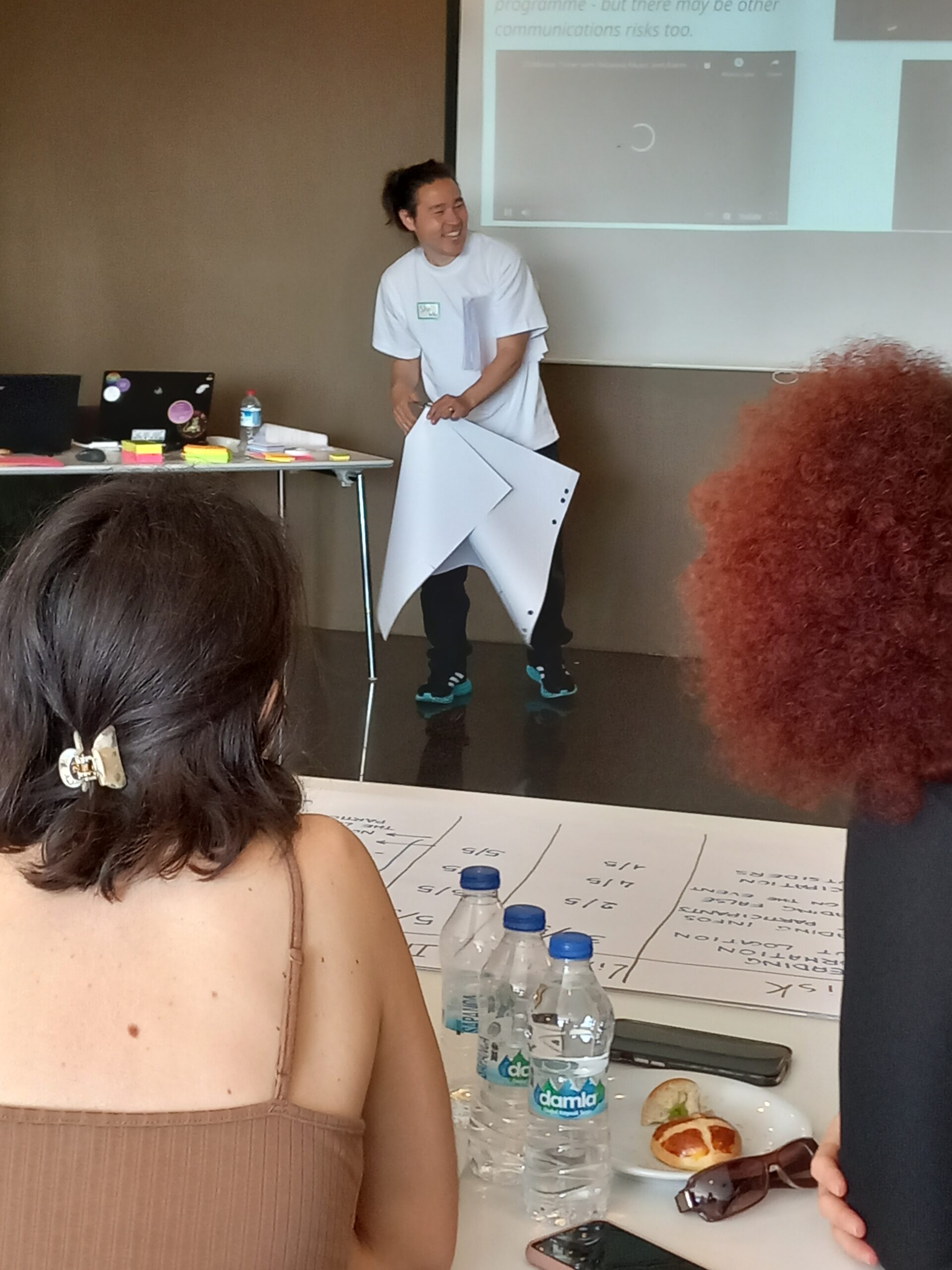Communications support group: messaging Session

At our next exciting Communications Support Group session, we’ll be be exploring what we say, how we say it and why this matters hugely in our work as communicators. We’ll be looking at the influence of framing, messaging, and the language we choose on our communications. And we’ll discuss simple, accessible ways to approach these concepts, even though they might initially seem complex or daunting. We will also explore how effective messaging can work across different contexts and even different languages.
During the session, we’ll discuss simple, accessible ways to approach these concepts, even though they might initially seem complex or daunting. We’ll also explore how effective messaging can work across different contexts and even different languages.
More about our Communications Support Group Sessions
Since February 2025, ILGA-Europe has been hosting a regular Communications Support Group for LGBTI activists. These lunchtime sessions are designed to inspire and empower you by spotlighting innovative communications experiences from your peers while offering a safe space to share your own challenges, insights, and successes.
The group is a semi-facilitated space, not a lecture or formal training. (If you’re looking for structured learning, check out our Skills Boost sessions.) You will be encouraged to ask questions, share your opinions and experiences, experiment with ideas, and most importantly, enjoy the process! Of course, you’re welcome to simply listen in, but we hope you’ll dive in and make the most of this collaborative space.
Join us on May 28 at noon (CEST), and every three months for a 60-minute online session where we’ll:
- Learn from each other: Hear from LGBTI activists across Europe and Central Asia, sharing their unique communication journeys.
- Explore our questions and dilemmas: Get fresh perspectives and support from the group.
- Foster meaningful connections: Network with like-minded professionals tackling the same work as you.
Together, we’ll explore comms challenges, celebrate wins, and even vent (because we know a good vent can lead to valuable learning!)
Register for the session on May 28 here.
Explore more on the topic, and deepen your learning journey
Start here:
Our Hub Card on DIY Framing for LGBTI Activists
Frames are mental structures through which we view the world and communication tools we use to engage with other people. By understanding framing, campaigners and activists can craft their communications to create sustainable social change.
Dig deeper:
Co-created with PIRC, this toolkit provides a deep dive into framing theory, values-based messaging, and how to develop messages that persuade.
Do you struggle with some specific communications challenge and do not know where to start? Reach out to us, we might be able to help! Contact svetlana@ilga-europe.org
Strategic offline communications & community-building for LGBTI groups
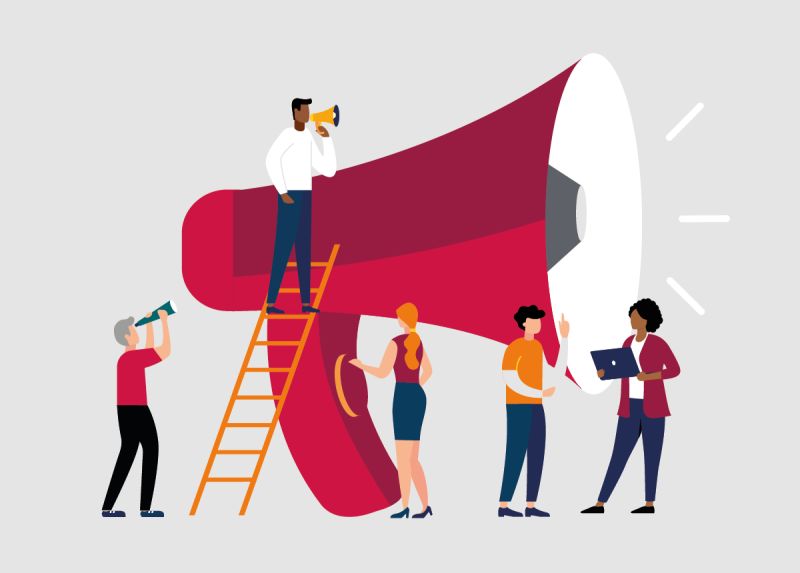
In today’s world, so many things happen online: support-groups, meetings, conferences, even community festivals. But does that mean offline engagement is obsolete and no longer helpful? At this session, we will learn why Ljubljana Pride Association (Slovenia) and Women’s Initiatives Supporting Group (Georgia) decided to focus on offline communications and community building, and what they gained from it.
At the session, we will cover:
- Offline communications and community building: does it make any sense?
- What is the right balance between offline and online?
- Intersectionality beyond our screens
- Offline movement engagement tactics
- The opportunities and challenges of offline engagement
You will hear from:
- Simona Muršec (she/her) is the President of Ljubljana Pride Association since 2015 and a devoted Human Rights Education trainer and facilitator of youth policy processes for over 20 years. She gained extensive experience working intercontinentally, with the focus on Africa-Europe and Euro-Arab Youth Cooperation and spaces of Global Education. She is a certified LEGO® SERIOUS PLAY® facilitator and supports organisations and teams with inclusive organisational strategic development. Simona is a member of the ILGA-Europe board.
- Nino Kharchilava (she/her) is a queer activist and women’s rights defender. Nino has a Master’s degree in gender studies. Her research interest is feminist practices of creating and transforming spaces. Since 2008, Nino has been involved in creation and development of safe spaces for queer and feminist women, and has actively participated in forming and conceptualising intercultural links in queer community and among women rights defenders, both at regional and international levels. Nino is a trainer of integrated security. She is also a co-author of a concept of healers. Currently she works as a Research and Education Coordinator at WISG.
- Eka Tsereteli (she/her) is an activist and women rights defender, co-founder of queer feminist organisation Women’s Initiatives Supporting Group (WISG). Eka’s feministic work is centered around transformative practices of organisational management, arts and creative initiatives, integration of multimedia and innovative technologies in activism. Since 2000, she has authored and implemented different initiatives directed towards ensuring gender equality, strengthening women and queer community and advocating their rights. She has organised multiple exhibitions and multimedia projects directed at changing public attitudes towards issues of queer community and women. Her work and experience in activism includes cooperation with different local and international organisations, both at executive positions and at the positions that bear responsibility for strategy development. Currently she is director of WISG.
This 90-minute session will take place on Thursday, April 10, 2025 (12.00-13.30 CEST). Register to join us here.
Check out our resources on strategic communications.
Do you struggle with some specific communications challenge and do not know where to start? Reach out to us, we might be able to help! Contact svetlana@ilga-europe.org.
ILGA-Europe’s Communications Support Group

This group is a semi-facilitated space—not a lecture or formal training. (If you’re looking for structured learning, check out our Skills Boost sessions.) Here, you’re encouraged to ask questions, share your opinions and experiences, experiment with ideas, and most importantly, enjoy the process! Of course, you’re welcome to simply listen in, but we hope you’ll dive in and make the most of this collaborative space.
Join us every three months for a 60-minute online session where we’ll:
- Learn from each other: Hear from LGBTI activists across Europe and Central Asia, sharing their unique communication journeys.
- Explore our questions and dilemmas: Get fresh perspectives and support from the group.
- Foster meaningful connections: Network with like-minded professionals tackling the same work as you.
Together, we’ll explore comms challenges, celebrate wins, and even vent (because we know a good vent can lead to valuable learning!).
- The first topic we’ll explore is: Should we make a statement? Activists often face pressure to respond to current events, but how do we determine when to speak out and when to stay silent? Join this session to engage in a thoughtful discussion with others!
Your hosts will guide the conversations in English. Take this opportunity to connect with fellow activists, grow your skills, and find solidarity in shared experiences.
The groups are planned on:
- February 26, Wednesday, 12:00 CET. Should we make a statement? How do we determine when to speak out and when to stay silent?
- May 28, Wednesday, 12:00 CEST. Framing, messaging and the language we use. Register for the second meeting.
- September 24, Wednesday, 12:00 CEST
- November 26, Wednesday, 12:00 CET
Our work with activists to help build strong communications strategies
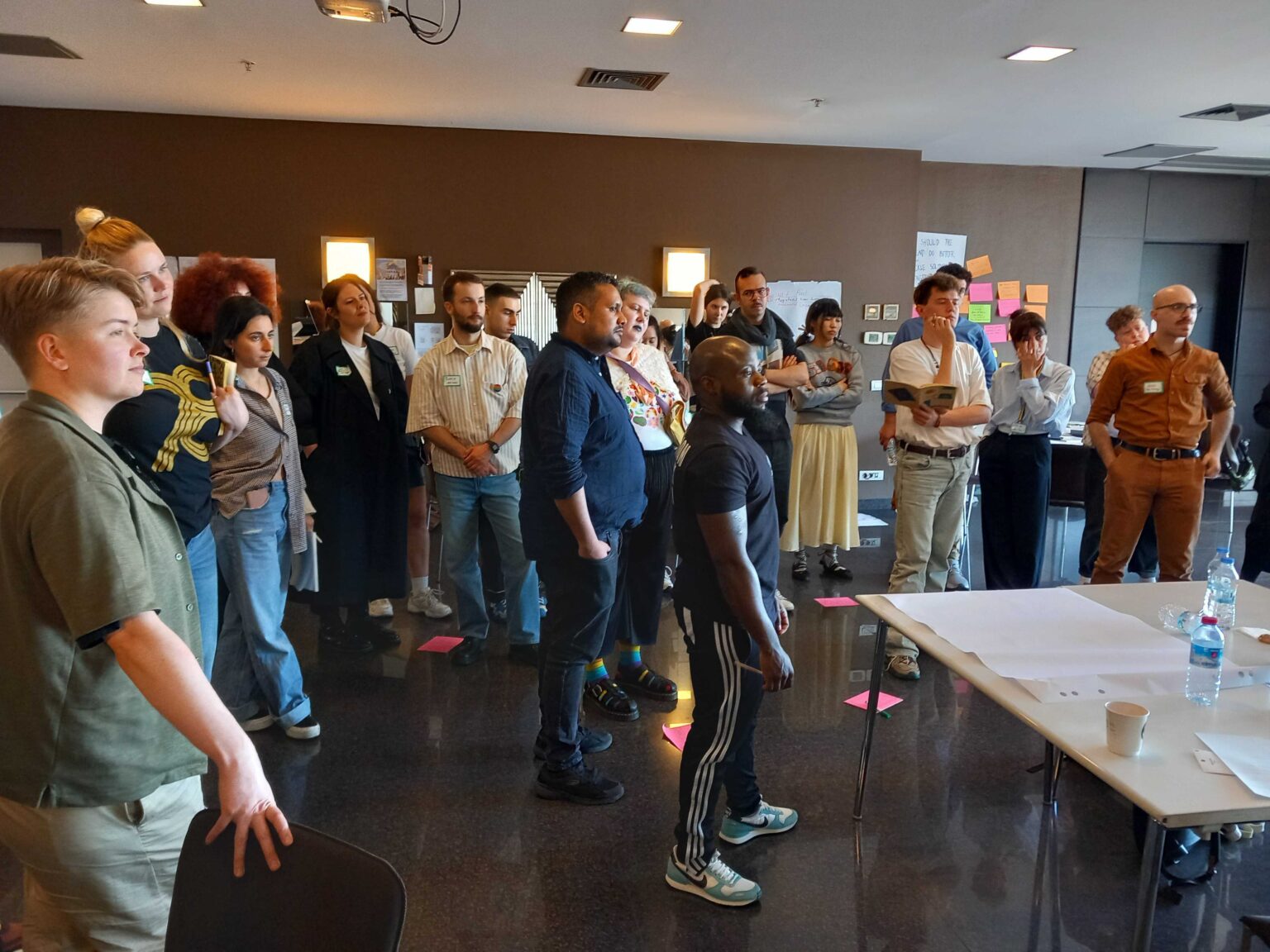
Over the past three years at ILGA-Europe we have been running a number of online Skills Boost sessions for activists who want to improve their communications skills. Recently we held two sessions on how to develop a communications strategy. Here’s what our participants learned.
During our recent online Skills Boost on communications strategies, we asked around 100 participants where they were within the cycle of a comms strategy creation. The majority of them responded with : “Thinking, but not started yet”.
Activists often face an overwhelming workload, and it can be difficult to prioritise something like a communications strategy amidst so many competing demands. Yet, having a strategy is not just another task; it is the foundation that makes all other communications more focused and effective.
Without a strategy, efforts can feel scattered or reactive, diminishing their impact. A good strategy ensures that your messaging reaches the right people, with the right message, at the right time. It is not about doing more but about working smarter and ensuring that your communications actively contribute to your organisation’s goals.
It may seem insurmountable, but it’s easy
Developing a communications strategy can feel like a big task, especially for LGBTI groups navigating limited resources and competing priorities. However, a well-thought-out strategy is more than a document—it is a tool that helps focus your efforts, align your team, and amplify your impact.
The good news is that you do not need a lengthy report or expensive consultancy to begin. What you really need are a few meaningful conversations with your team and a clear sense of where you’re heading. Here is an easy breakdown of the key elements of our Skills Boost to build a communications strategy:
Develop a four-question backbone
At its heart, a good communications strategy is about answering these four questions:
- Why? Why are we communicating? What impact are we aiming for?
- Who? Who do we need to engage, persuade, or mobilise?
- What? What stories, messages, or visuals will resonate?
- Where? Where can we best reach our audience?
These questions form the backbone of any effective strategy. By working through them together as a team, you’ll uncover what really matters and avoid getting caught up in endless, unfocused activity.
Skip the one-size-fits-all approach
Every organisation is unique, and a communications strategy should reflect this. Rather than following a generic template, craft a plan that considers your specific context, priorities, and resources.
Start by identifying what feels most urgent or significant to your team. Perhaps your focus is on strengthening advocacy, connecting more deeply with your community, or shifting public narratives. It is equally important to recognise that you do not have to tackle everything at once. Set priorities, focus on a few clear objectives, and treat your strategy as a living document that evolves with your organisation.
Fill the gaps in your current practices
A communications strategy should simplify your team’s work, not add unnecessary complexity. Think of it as a roadmap: a practical guide that clarifies your direction without overwhelming you with rigid rules.
Start by examining your current practices. What is working well? Where are the gaps? Use these insights to build a framework that streamlines your messaging, focuses your channels, and supports intentional conversations. When done well, a strategy provides clarity and confidence, making your communications more cohesive and impactful.
Begin with small steps
At its core, communications is about connection—and every connection starts with intention. Begin by gathering your team and discussing the four key questions. Even small steps can lead to significant clarity and progress.
If you need further guidance, explore ILGA-Europe’s resources on strategic communications on The Hub, ILGA-Europe’s LGBTI Resource-Sharing Centre, or reach out to us for tailored advice. Together, we can ensure your voice not only reaches the right audiences but makes a lasting impact.
Online learning session for LGBTI activists: Effective messaging in times of crisis

During the session, we explored how to frame messages that build a connection using real examples of organisations that have responded thoughtfully and strategically to crises.
We also discussed how to adapt communications to meet the evolving needs of communities, while at the same time staying aligned with a long-term vision.
Check this session out and walk away with ready-to-use tools, adaptable messaging frameworks, and the know-how to handle anything from backlash to unexpected media attention.
The session was prepared by ILGA-Europe communications consultants AJ Venturini (they/them) and Evá Papadakis (he/they).
You might like to check other communications resources from ILGA-Europe:
- Checklist for Your Crisis Communication: https://hub.ilga-europe.org/communications/checklist-for-your-crisis-communication/
- Skills Boost for LGBTI Activists: Media Interview Practice: https://www.youtube.com/watch?v=QvS47iop59c&list=PLGkBSwIwd0qigza5kbrFmS0_80zGgAkbR&index=3
- Skills Boost: Useful communications strategies for LGBTI activists: https://www.youtube.com/watch?v=HDomQzkr3mQ&list=PLGkBSwIwd0qigza5kbrFmS0_80zGgAkbR&index=6
Do you struggle with some specific communications challenge and do not know where to start? Reach out to us, we might be able to help! Contact svetlana@ilga-europe.org.
Online learning session for LGBTI activists: Effective messaging in times of crisis
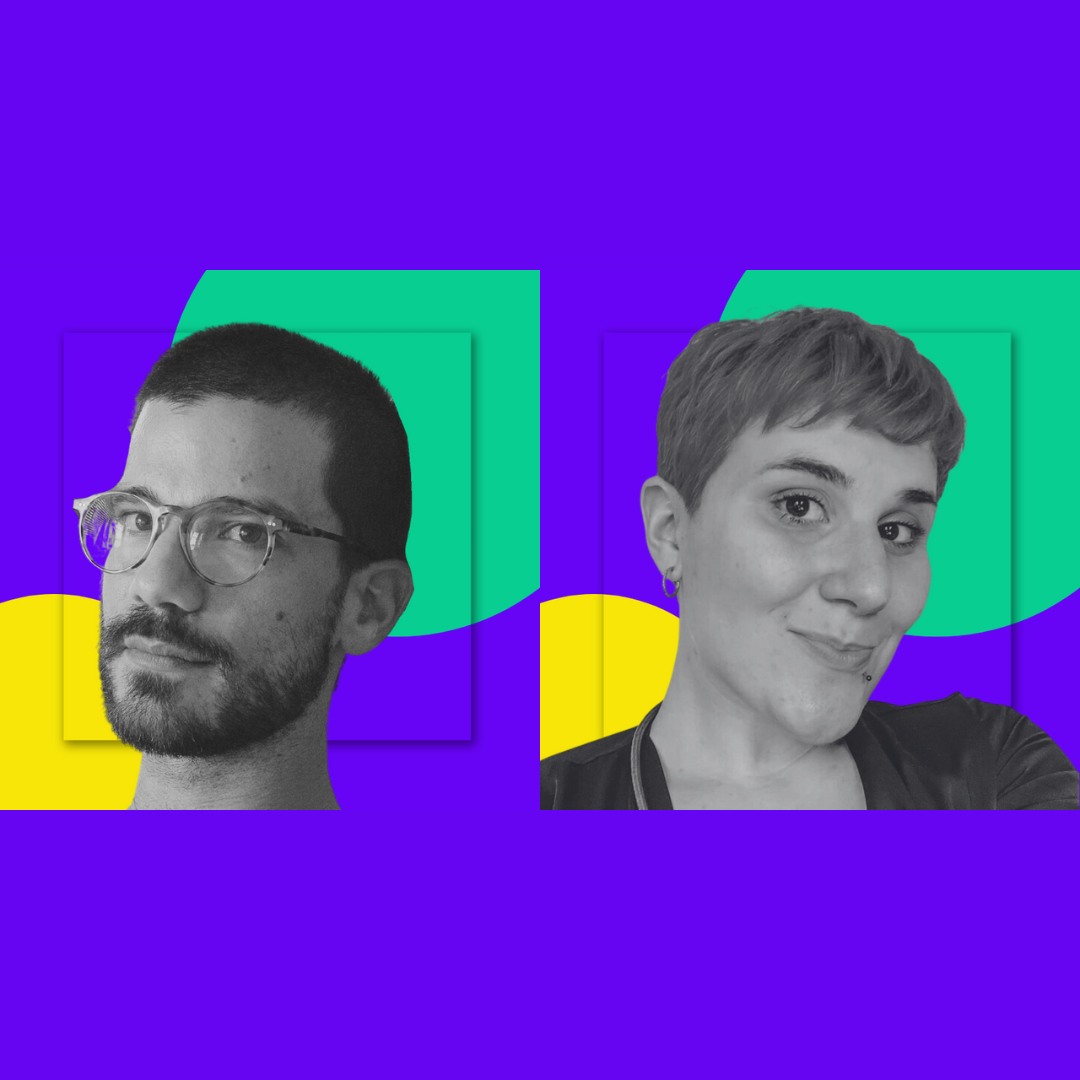
When a small LGBTI organisation faces sudden public scrutiny, knowing how to craft messages that unite rather than divide is crucial.
In this vital online session for LGBTI activists in Europe and Central Asia, we’ll explore how to frame messages that build a connection using real examples of organisations that have responded thoughtfully and strategically to crises.
From the first response to post-crisis engagement, we’ll discuss how to adapt your communications to meet the evolving needs of your communities while staying aligned with your long-term vision.
- Don’t wait for a crisis to hit!
- Join us to learn and exchange ideas on turning communication challenges into opportunities for resilience and connection.
- Walk away with ready-to-use tools, adaptable messaging frameworks, and the know-how to handle anything from backlash to unexpected media attention.
This 90-minute session will take place on Wednesday, December 4, 2024 (12.00-13.30 CET). Register for this session here: https://ilga-europe-org.zoom.us/meeting/register/tZIlcumppjgoGdEPX7qzEI4J97hqVnQpC8vP
Trainers
AJ Venturini (they/them)
AJ is an expert LGBTIQ+ campaigner, facilitator, and life coach with over a decade of experience delivering high-impact, creative projects on social change issues ranging from LGBTIQ+ to refugee rights. In their roles for ILGA-Europe, Amnesty International, Act Build Change and Gendered Intelligence, amongst others, they have been supporting change-makers, activists, and grassroots groups to deepen their collective care and wellbeing practices, knowledge, skills, and confidence to campaign for their rights and achieve their goals.
Evá Papadakis (he/they)
Evá is a multilingual strategic and digital communication expert, with over a decade of experience leading diverse teams and creating impactful global strategies to elevate the work of mission-driven international organisations focusing on the intersection of climate, refugees, and LGBTIQ+ rights. They have authored articles, toolkits and reports. Evá has field experience with UNHCR and contributed on Diversity, Equality & Inclusion initiatives at UN Globe & Global Advisory Group Member on Inclusion and Diversity for the High Commissioner for Refugees.
Skills Boost: Useful communications strategies for LGBTI groups: Take it to the next level
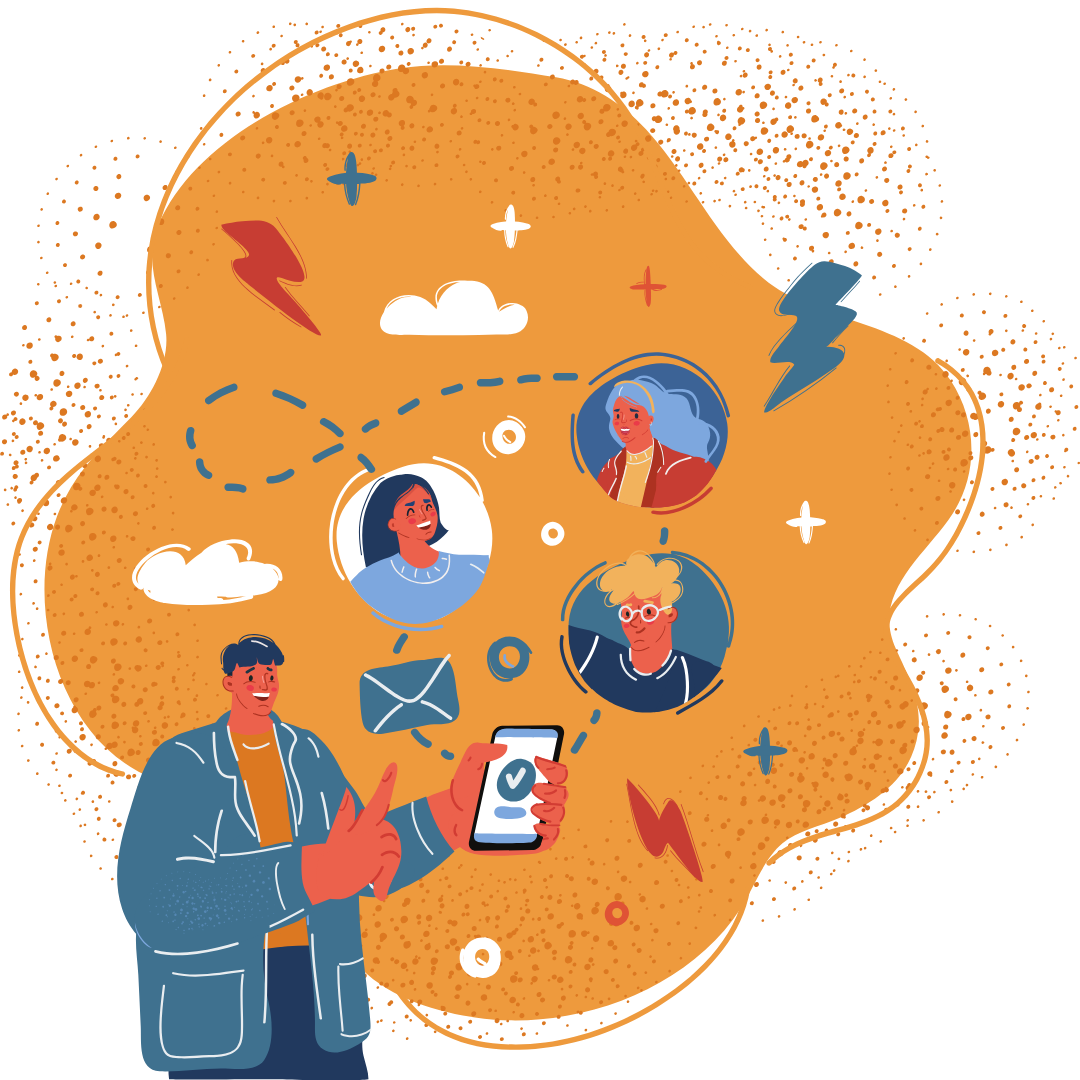
At this session, Simona Mursec from Ljubljana Pride (Slovenia) shared the experience of developing several separate communications strategies for different areas of work and updating them.
We covered:
- Does an organisation need more than one comms strategy, and what to do if the answer is yes?
- How did Ljubljana Pride approach this challenge, and what did they learn?
- Why update a comms strategy and how to do it in a smart way?
Here are our top 9 quotes from this session check them out and see if the recording of the session might be a good match for you!
1. A communications strategy gives us a ready-made answer to requests like “please put this on social media”
“A comms strategy gives us the strategic framework for what we share, which channel is appropriate to share information from other organisations, and how we enhance our own audiences by cooperation with other organisations”.
2. Beware of Consultants bringing their own processes, especially private-sector consultants who mostly work in very different contexts
“I involve people that can support the processes. I am not a big fan of consultants when the role of the consultant is to come in with a model, a theory or their own way of doing things. Because most of the time it will not work for us. We have to develop our own model, approach, thought, commitment, and ownership of it.
I am more of a fan of people who can facilitate a process, who can take time to understand organisational needs rather than coming in with their own way of doing communications. For consultants it can be rather a game, and for us it’s not. This is our life.”
3. Everything comes with experience
“It took us a long time until we were able to invest into an organisational strategy. Once we had the organisational strategy, everything else went much faster, it was much clearer why we needed it, and how we could work with it. We built the muscle for it, then it was easier and less resource-intensive or time-intensive”.
4. Primary and Strategic audiences for Ljubljana Pride
“Our primary target audiences are LGBTI+ young people (15-29), the LGBT+ community in Slovenia, allies of LGBT+ community in Slovenia, allies and LGBT+ activists from abroad and young activists. And our strategic audiences are Slovenian media, LGBT+ influencers, LGBT+ organisations and initiatives and other activists’ organisations and groups.”
5. Sustainable funding is still one of the biggest challenges
“One of the most important resources for an organisation are trained staff members and volunteers. And by trained, I mean people with enough political, content, personal and other kinds of capacities. It takes money to attract, support and train, to build the capacity of your team. ILGA-Europe’s communications grant was the first grant ever we could use to pay comms staff. Most of the time it is a puzzle”.
6. Don’t make your cycles fit funding – decide strategy and then get creative to find funding to fit.
“I never connect organisational development and strategic development to funding. For me, funding is a tool. We decide at our own pace what our work is going to be. We decide what we are going to do, what are our strategic priorities and how we are going to do it, and then we find funding for that”.
7. Strategic choices do not always work in real life
“We spent some time trying to figure out how to use TikTok best. On the one hand, it is a great tool, and we got good outreach and a lot of visibility among young people, which is our target audience. But it also creates a lot of hate. So theoretically we would like to have it as a two-way communications channel. However, it is managed by volunteers and by young people themselves, and we don’t have the capacity to support them enough. So, for many years we have had to keep the comments closed. Strategically it should not be this way. But practically, it is the way it is.”
8. I would love everybody to have a printout on the wall
“I would love everybody who is doing content work to have a printed document on the wall, and once a week to have a glimpse to think how to incorporate our objectives into the work next week. But life doesn’t work like that, and people don’t work like that. So, we review strategies periodically, every three months. And if you do it this way, you can still clean up and make sure that nothing is forgotten. If you do it once a year, you probably have a problem”.
9. We often don’t have a choice to communicate or not – so we should structure it
“You might be an organisation that works more with internal audiences. You might not be as publicly politically exposed, but you almost certainly still need to communicate. We cannot escape it, we can still be dragged into because of the very hostile environment. So, we prefer to invest and to be more strategic and structured, so we know how to capitalise on it, how to respond, and how to build public pressure”.
You might like to check out some of our other communications resources:
- Useful communications for LGBTI activists: (Skills Boost recording): Click here
- Communications Strategies for Small Organisations (The ILGA-Europe Hub): Click here
- 9 Steps to a Good Communications Plan (The ILGA-Europe Hub): Click here
Do you struggle with some specific communications challenge, and do not know where to start? Reach out to us, we might be able to help! Contact svetlana@ilga-europe.org
Boost your communications and campaigning skills with our free, easy-access sessions for LGBTI activists
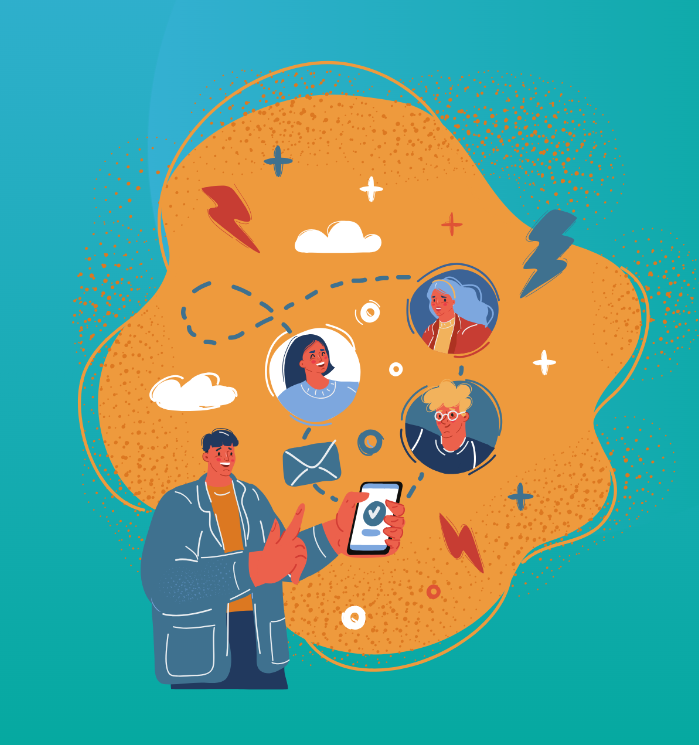
In the ever-evolving landscape of LGBTI activism, staying ahead with the right tools and strategies is essential. At ILGA-Europe we offer free training from experts in the field of strategic communications and it’s easily accessible from wherever you are. Find out more in today’s blog.
Are you taking advantage of the opportunity to access free, practical resources to enhance your communications and campaigning skills as an LGBTI activist or organisation? Our Skills Boost sessions bridge the gap between broad online resources and in-depth, hands-on coaching, offering activists practical training on topics that matter most. These sessions are designed to be engaging, relevant, and most importantly, actionable.
Whether you’re just starting or looking to upgrade your approach, our Skills Boost sessions offer expert guidance and personalised feedback, making it easier for you to implement what you learn. On top of that, there is space for peer learning, because you can give and receive feedback from other activists who are doing the same or similar work in their contexts.
Check out a few past Skills Boost sessions below, and take the opportunity to sharpen your skills and join a growing community of activists committed to making a real impact!
Skills Boost on Data Visualisation for LGBTI Communication
Communicating with visuals is more important than ever. This session focused on how LGBTI activists can transform complex data into compelling visual stories. Using data from our Rainbow Map, participants were guided through the process of creating powerful visualisations—no design experience required.
Skills Boost on Effective Fundraising Campaigns for LGBTI Activists
This session focused on creating successful fundraising campaigns targeting individual donors. The workshop provided insights into best practices and real-world examples to inspire effective fundraising efforts.
Skills Boost for LGBTI Activists: Media Interview Practice
Getting your message across in TV interviews can be daunting. This session offered practical guidance on how to prepare for media appearances, particularly in TV interviews. Participants learned about crafting messaging, handling technical aspects of interviews, and navigating difficult questions—all with a focus on personal wellbeing.
Skills Boost on Digital Ads for LGBTI Groups
Led by digital consultant Jean O’Brien, this session explored how to maximise the impact of digital ads with little or no budget. From choosing the right platform to getting the most out of Meta ads (Facebook and Instagram), the workshop provided practical strategies for effective digital campaigns, even when resources are limited.
Skills Boost: Useful Communications Strategies for LGBTI Activists
This session demystified communications strategies for LGBTI organisations. Participants explored what makes a strong communications strategy and heard from organisations that have successfully implemented their own strategies.
Are you interested in joining our next Skills Boost?
Upcoming: Skills Boost on Useful Communications Strategies for LGBTI Groups – Take It to the Next Level
Join us on Wednesday, 25 September at 12:00 CEST for a 60-minute session where Ljubljana Pride will share how they developed multiple communications strategies for different areas of their work. Learn how to update your own strategy and decide if you need more than one. Register now to take your comms skills to the next level!
Skills Boost: Useful communications strategies for LGBTI groups: Take it to the next level

Register here to join us at 12:00 CEST (noon), Wednesday 25 September for a 60-minute Skills Boost session designed for LGBTI activists who want to go deeper into communications strategies.
At this session, you will learn about the experience of Ljubljana Pride (Slovenia), who developed comms strategies for every area of their work.
We will cover:
- Does an organisation need more than one comms strategy, and what to do if the answer is yes? How did Ljubljana Pride approach this challenge, and what did they learn?
- Why update a comms strategy and how to do it in a smart way?
- As our previous Skills Boost was devoted to “basics” of comms strategies, this time we will focus on specific experiences of Ljubljana Pride and their learnings.
Excited for our Skills Boost on 25 September? While you wait, watch the recording of our previous session on comms strategies:
Did you miss this session? Find the recording and some additional materials to look at below!
You might want to check other comms resources by ILGA Europe:
- Useful communications for LGBTI activists: (Skills Boost recording): https://www.youtube.com/watch?v=HDomQzkr3mQ&t=2566s
- Communications Strategies for Small Organisations (a Hub card): https://hub.ilga-europe.org/communications/communications-strategies-for-small-organisations/
- 9 Steps to a Good Communications Plan (Hub card): https://hub.ilga-europe.org/communications/9-steps-to-a-good-communications-plan/
Do you struggle with some specific communications challenge, and do not know where to start? Reach out to us, we might be able to help! Contact svetlana@ilga-europe.org
Digital advertising for LGBTI activists: What we learned at the latest ILGA-Europe Skills Boost
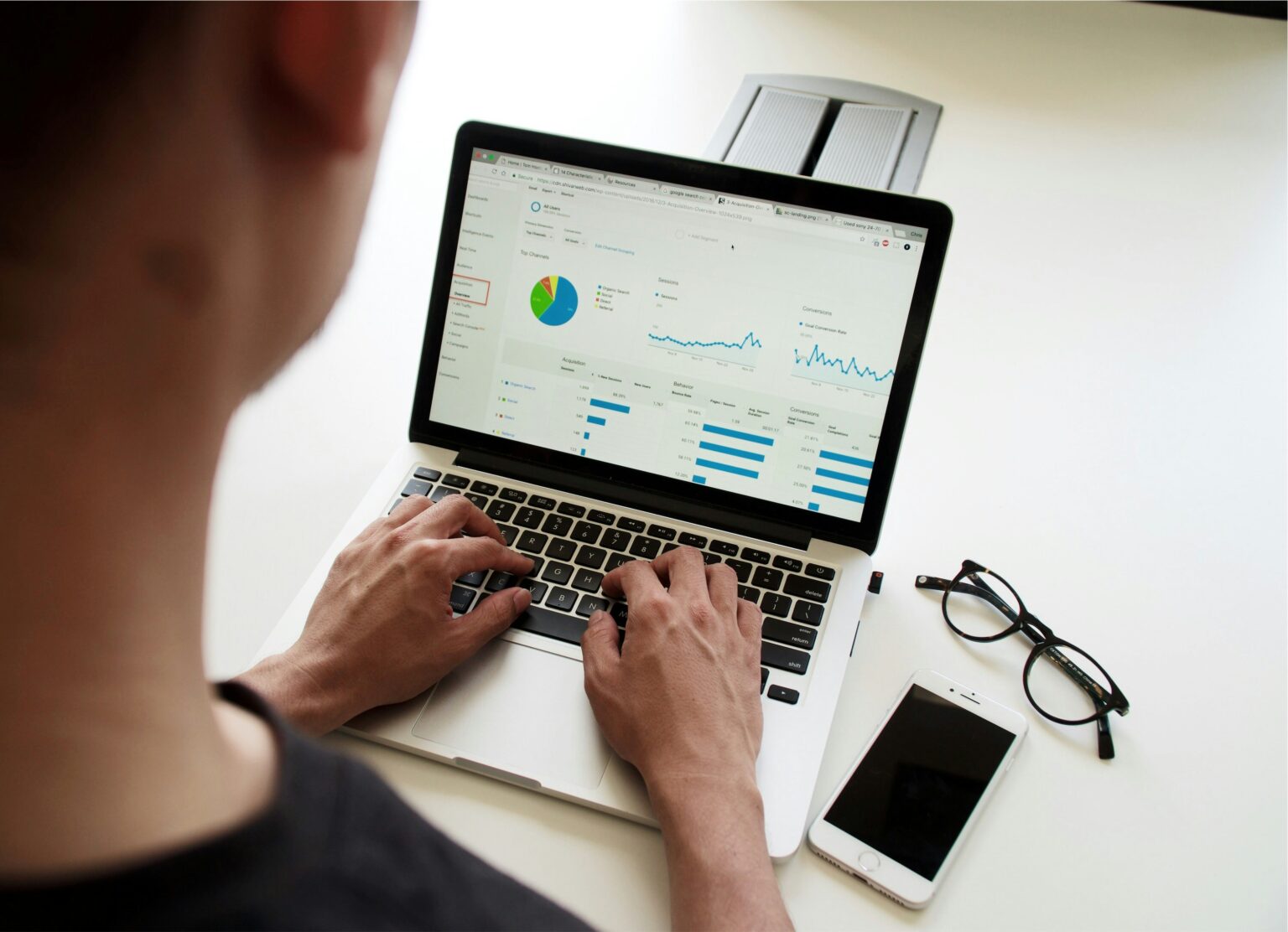
At ILGA-Europe, one of our goals is to equip activists with new skills and knowledge to help them amplify their voices and make a meaningful impact in their communities. One of the ways we do this is through our regular online Skills Boosts. Our latest one was all about maximising the potential of digital advertising.
We are committed to empowering LGBTI activists across Europe and Central Asia through our Skills Boosts. These online sessions cover a range of critical topics such as media relations, fundraising campaigns, and communication strategies. By equipping activists with the necessary skills and knowledge, we help them amplify their voices and make a meaningful impact in their communities.
In our last Skills Boost we dove into the world of digital advertising, with a special focus on helping LGBTI organisations maximise their reach and effectiveness online. Jean O’Brien, digital consultant and founder of Digital Charity Lab, was with us to share her expertise on how LGBTI organisations can get started with digital ads. Jean is an expert in using digital channels to build support for causes, and she shared her top tips for understanding, using and testing digital ads.
1. You almost definitely need a paid ad strategy
The reach of organic content (i.e. content that’s posted for free, with no ad budget) on social media decreases every year. These channels were all built in order to sell ads, and it’s very difficult to get a good return with free activity only. You may find that some organic posts do well but then the next ones will perform badly. There’s no consistency, and you really need to be able to count on a channel to deliver, if you’re putting time into it. A majority of non-profits need some kind of budget for paid digital ads.
2. You just need enough budget to run a test campaign
If you don’t currently have a budget for ads, consider halting other activities to free up funds. For example, if you are boosting posts, stop that and allocate the budget to proper ads instead.
Aim for a budget of up to €1,000 to run a lead ad campaign (see more in point 9). Once you measure the performance of this campaign, you can make the case for more budget.
If there is genuinely no budget and no chance of getting one, then review whether you can continue with certain channels at all. If you’re putting a lot of time into organic posting on Instagram which brings in no return, that’s a waste of resources and you can consider abandoning that channel entirely.
3. Meta Ads are the best place to start
There are many options for paid digital, including Google Ads, TikTok, Meta, LinkedIn, Twitter / X, etc. These platforms all have different strengths. When you’re starting off with a small ad budget, I recommend focusing on Meta Ads, as they have the most powerful ad algorithm. The Meta platform includes ads on Facebook, Instagram and WhatsApp, so you can reach very different audiences within it.
It’s also really worth applying for the Google Grant and setting up Google Grant Ads, if you have enough resources to do two ad channels. Google donates up to $10k in search ads each month, and it’s a great channel for reaching warm audiences. Find out more in Digital Charity Lab’s online course in Google Grant Ads.
4. Learn how to run your own Meta campaigns
If you always hire agencies to run your Meta campaigns, it makes each campaign more expensive. Learning how to run campaigns and do split-testing yourself, will get you much better value with your Meta Ads. Plus it’s great professional development for your team.
5. Understand Meta Ad objectives
Meta Ads allow you to choose different ‘objectives’ – you’ll define what you want to achieve from your campaign. It’s very specific and literal so be careful: if you choose ‘video views’, Meta will just find people who watch a lot of videos. If you want people to watch a video and then take an action, you’re better off choosing a conversion objective instead. Meta has absolutely immense amounts of data on its users, and it knows which people are most likely to take an action. Choose your campaign objectives with care: they’re really important, and easy to get wrong. If you don’t tell Meta the right strategy, it won’t find the right people.
6. Every campaign needs 50 results in order to really perform
This is how Meta Ads platform works:
- You set an objective for your campaign (such as leads; or conversions like purchases or donations)
- Meta tries to find the first 50 results. If it’s a lead campaign, it needs 50 leads. If it’s a donations campaign, it needs 50 donations.
- Once it has the first 50, it then uses those results to build a statistical model, to find more people like the first 50. This is when the campaign starts ‘optimising’ – i.e., finding the best audiences for the ads and the best cost per result.
- If Meta can’t find the first 50 results, it shows ‘learning limited’ and the campaign will not perform as well.
When you’re running a Meta Ad campaign, you need to give it enough budget and time to find the first 50 results. If you don’t, the campaign won’t perform well. This obviously makes things more complicated when it comes to objectives like donations: it can cost a lot of money to get 50 donations. That’s why I recommend starting with a lead ad campaign (see more in point 9).
7. Go bigger than you may be used to – bigger budgets, longer run times, broad audience
Non-profits often make the mistake of splitting their Meta Ads budget across lots of very small campaigns – €100 here, €75 there, 2 days here, a week there. A much better way to spend your budget is to consolidate it into one lead campaign (see more in point 9). It means you’ll be able to get the first 50 results, and do proper creative split testing to get a really good cost per result. Once you have your best creative, you can run the ads for a long time on a small daily budget, constantly growing your mailing list and getting really good value out of the campaign.
Try broad audience targeting when you’re doing your lead campaign. The Meta algorithm is really good at finding the right people.
8. Creative split testing is crucial
The more creative variations you use, the more chances you give Meta to find the relevant people. Meta makes split testing really easy, with its ‘dynamic creative’ ad format.
The way many charities work is: they spend a lot of time developing the look and feel of a campaign, create a few core designs based on the creative concept, and then just use those designs in their Meta ads. But if you start by testing more images, and more that are significantly different, you’ll be pleasantly surprised with the results.
Test five headlines, five primary texts and at least five images in each campaign. Meta will give you the exact breakdown of which are achieving the most volume and the best cost. Once you know the best performers, you can remove the ones that aren’t working and continue the campaign with the best creative.
9. A lead campaign is a great place to start
Lead ads are a very effective ad format on Meta, that allow you to capture contact details directly on Facebook and Instagram. Meta’s lead forms are very user-friendly and quick for people to fill in.
With a lead campaign, you can capture people’s contact information and move them to a platform where it’s easier and cheaper to contact them – such as email or SMS. Once you have contact details for a supporter, you have multiple opportunities to talk to them. You can develop a long term relationship, and get long term value from the campaign.
Lead campaigns will work with small budgets – you can run an effective lead campaign for around €1,000.
Start learning and testing!
There is definitely a great opportunity for LGBTI organisations to use Meta Ads to build support. You just need to ensure that the budget is adequate, and that you’re supported to learn the platform and fully understand good strategy before you’re expected to bring in results.
Sources for learning more about Meta Ads
- Join ILGA-Europe’s private communications support group to get access to the recording, slidedeck, and 46-page guide from the Skills Boost on Digital Ads which Jean ran for LGBTI activists in June 2024.
- Jon Loomer – Meta Ads expert who shares extremely useful information on his website
- Digital Charity Lab – free and affordable digital skill-building for non-profits
Don’t miss our next Skill Boost! Join our Facebook group Communications support group for LGBTI activists where we regularly post upcoming opportunities to boost your communication skills.
Skills Boost: Get the most from digital ads
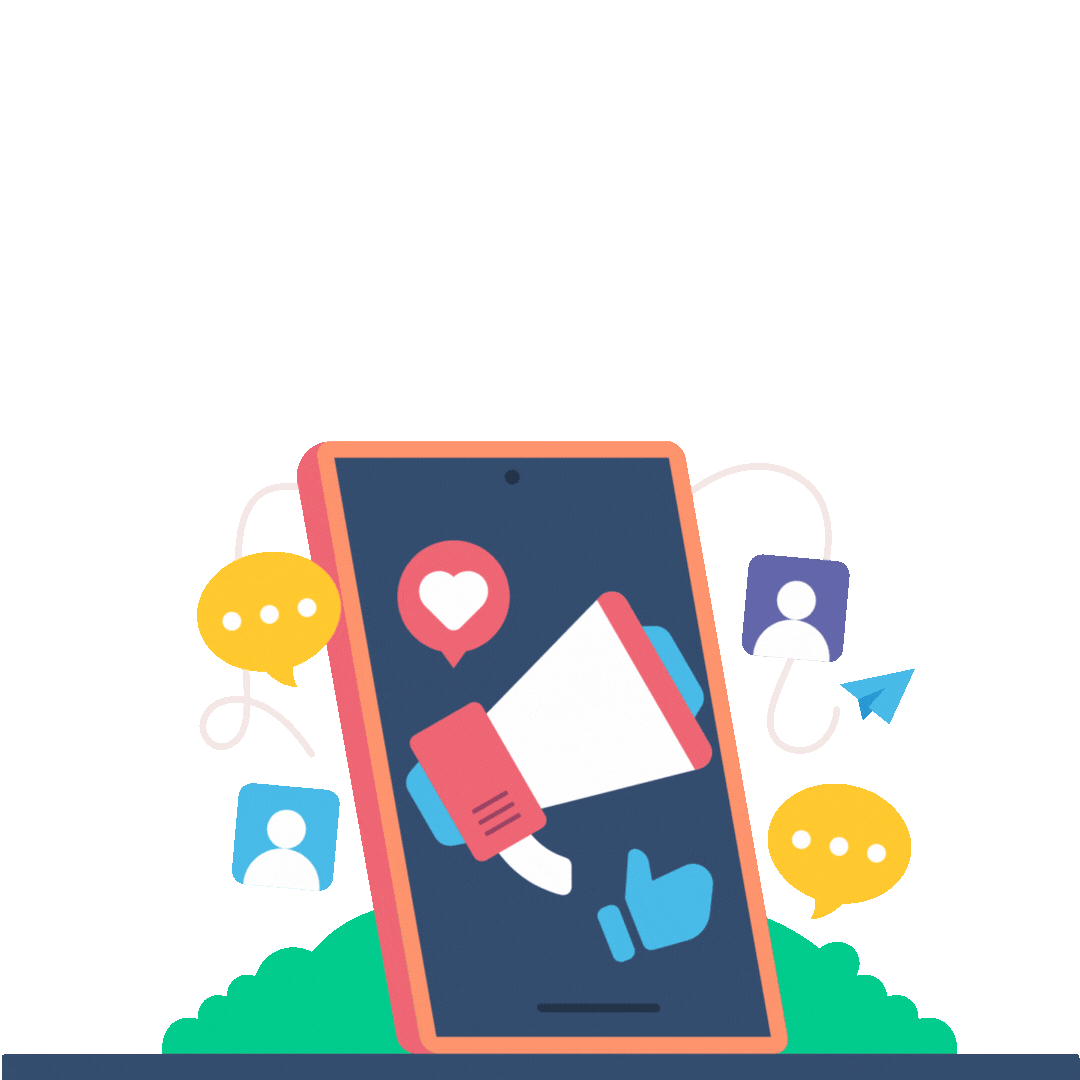
Digital consultant Jean O’Brien who specialises in nonprofits and activism covered:
- Various channels for paid digital ads – what are their strengths and weaknesses and how to decide where to go.
- Focus on Meta ads (Facebook & Instagram): how they work, and how to get the best out of them.
- The best low-budget campaigns. What to do and where to start. What are the zero budget options?
- What to do if your ads are constantly rejected (for example for being ‘political’).
You might want to check other comms resources by ILGA Europe:
- Digital advertising for LGBTI activists: What we learned at the latest ILGA-Europe Skills Boost (ILGA-Europe blog post): https://www.ilga-europe.org/blog/digital-advertising-for-lgbti-activists-what-we-learned-at-the-latest-ilga-europe-skills-boost/
- From numbers to stories: How LGBTI activists can use data visualization (Ilga-europe blog post): https://www.ilga-europe.org/blog/lgbti-activists-data-visualisation/
- ILGA-Europe Guide to Meta Ads (written and designed by Jean O’Brien of Digital Charity Lab: https://www.ilga-europe.org/files/uploads/2024/11/2024-ILGA-Europe-Meta-Ads-Guide.pdf
Do you struggle with some specific communications challenge, and do not know where to start? Reach out to us, we might be able to help! Contact svetlana@ilga-europe.org
Keep Calm and Communicate: LGBTI Activists Share Crisis Communication Tips
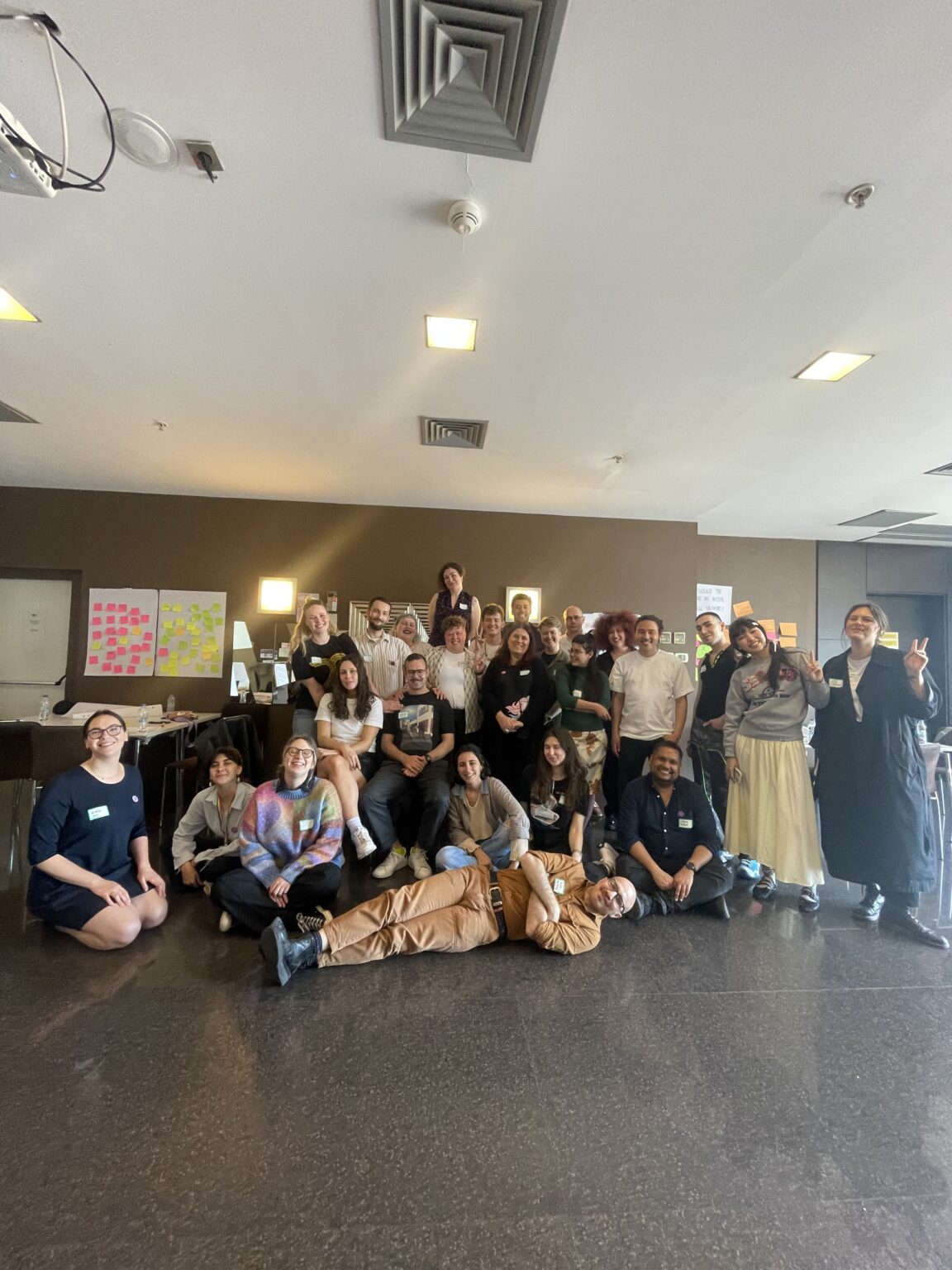
Last month we brought together 25 activists from over 15 countries to discuss and learn all about communicating in times of crisis. With Pride season upon us, and the challenges Pride events can bring for queer activists and organisers, this blog presents the key takeaways.
Pride season is here, and the LGBTI community is busy getting ready to both celebrate and assert visibility across Europe. But we are living through a time in many countries when LGBTI people are being scapegoated, which brings challenges amid the celebrations for many Pride organisers.
In May, ILGA-Europe hosted a two-day learning event on crisis communication for LGBTI organisations from across Europe and Central Asia, which we entitled ‘Get Ready!’. This gathering was an opportunity for 25 activists from over 15 countries to come together and address the complex challenges they face when communicating to their communities, the media and other stakeholders at times of crisis.
The group of passionate activists from diverse backgrounds demonstrated the power of collaboration during our time together. This created a profound sense of solidarity and mutual understanding and the room was alive with the exchange of expertise, self-care tips, and strategic ideas, leading to new collaborations and strengthened networks.
During our discussions we learned that the diversity of challenges faced by LGBTI organisations in crisis communication is vast and complex, but the participants highlighted five key issues that are similar across different countries and contexts. They are:
Balancing conflicting interests
Organisations often operate in regions with significant political and social tensions. This requires carefully navigating their messaging to address both local and international audiences without alienating either.
Fragmentation and internal conflicts
Many movements suffer from internal fragmentation, making unified communication difficult. Differing priorities and approaches within the community can lead to inconsistent messaging and weakened responses during crises.
Targeted campaigns and opposition
Advocacy campaigns frequently attract opposition from various groups, including TERFs (trans-exclusionary radical feminists) and anti-gender movements. These groups often launch coordinated attacks, which leads to the necessity of having both proactive and reactive strategies to mitigate their impact and protect the community.
Social media and digital threats
The digital landscape presents unique challenges, from social media posts being reported and accounts being suspended to full-blown smear campaigns. Organisations must be adept at digital crisis management, swiftly countering misinformation and protecting their online presence.
Polarisation and backlash
In many regions, the rising tide of anti-gender rhetoric and the instrumentalisation of LGBTI issues by political actors create a highly polarised environment. Navigating this landscape requires not only strong messaging but also the ability to build and maintain alliances in a hostile atmosphere.
These challenges illustrate the layered nature of crisis communication within the LGBTI activism and advocacy space. Organisations are called upon develop tailored strategies to address unique circumstances in their own contexts, while drawing on shared experiences and collective wisdom. It’s also important to acknowledge that security risks, particularly around public events like Pride marches, heavily burden activists. Although these are not primarily crises, they significantly impact the overall environment in which LGBTI organisations operate.
Key Tips and Tricks for Effective Crisis Communication
During the training, activists shared a wealth of strategies for tackling these challenges, which we captured on video. We asked participants to remember the moments of stress, panic and hard times they experienced, and then to envision talking to a young activist facing a communication crisis for the first time. The result is a collection of universal and empowering tips by activists for activists to help keep your head up during a crisis.
1. Define your audience
Tailor your message to ensure it resonates with your specific target audience, such as sympathetic media outlets, supportive community groups, and potential allies within the general public.
2. Know your community
While it’s important to communicate with the broader public, never forget that your primary responsibility is to support and uplift the LGBTI community. Your people need to know you have their back.
3. Rely on your support network
The strength of the LGBTI movement lies in its solidarity. Your chosen family, friends, mentors, and colleagues are invaluable resources in times of crisis. They can mentor you, talk things through, offer help and comfort, and step in if you need to step back. Sharing the burden of these responsibilities can lighten the load significantly.
4. Stand in solidarity with other LGBTI organisations
In a crisis, consider others who are also impacted and their potential responses and strategies. Collaborating with other LGBTI organisations, showing solidarity, mutual support, and a unified response will strengthen our collective resilience.
5. Maintain a healthy distance
LGBTI activism often intertwines with personal identity, making it essential to keep a clear boundary between doing the work and living your life to avoid burnout. Remember that you are more than your work and activism, and it’s okay to step back when necessary.
6. Take It step-by-step
Crisis situations can be overwhelming, but it’s crucial to stay focused on your message. Clear, calm communication is key to navigating through the storm.
7. Practice in private, be prepared in public
Doing a roleplay of a likely communications crisis situation can help you practice and take some stress out of a real situation. The Get Ready! participants took part in an exercise which tested their preparation, monitoring, diagnosis, and response to a hypothetical crisis. ILGA-Europe is developing this exercise to provide a resource to more LGBTI groups who want to prepare for communications crises. Join our Facebook group Communications support group for LGBTI activists to be up to date with any upcoming opportunities.
Skills Boost: Get the most from digital ads

Join us on June 12 and June 26 for our Skills Boost sessions designed for LGBTI activists who want to learn more about digital ads and how to use them more strategically. We have invited a digital marketing expert who specialises in nonprofits and activism, to cover:
- Various channels for paid digital ads – what are their strengths and weaknesses and how to decide where to go.
- Focus on Meta ads (Facebook & Instagram): how they work, and how to get the best out of them.
- The best low-budget campaigns. What to do and where to start.
- What are the zero budget options?
- What to do if your ads are constantly rejected (for example for being ‘political’).
At the end of the first session, the participants will receive an assignment. Everyone who completes the assignment will get individual feedback at the second session, on June 26 at 12:00 CEST.
- Register here to join the session on June 26th (the session lasts 90 minutes).
Assignment for the second session
Fill out this template one-page plan for a Lead Campaign (which includes an example to give you an idea that it does not have to be super detailed or take you too much time!) and send to sho@ilga-europe.org before 10am Monday 24th June. There will be more time for questions, discussions and peer-learning, so join us even if you are not doing “homework”.
Did you miss this session? Find the recording and some additional materials to look at below!
You might want to check other comms resources by ILGA Europe:
- Digital advertising for LGBTI activists: What we learned at the latest ILGA-Europe Skills Boost (ILGA-Europe blog post): https://www.ilga-europe.org/blog/digital-advertising-for-lgbti-activists-what-we-learned-at-the-latest-ilga-europe-skills-boost/
- From numbers to stories: How LGBTI activists can use data visualization (Ilga-europe blog post): https://www.ilga-europe.org/blog/lgbti-activists-data-visualisation/
- ILGA-Europe Guide to Meta Ads (written and designed by Jean O’Brien of Digital Charity Lab: WHY EXACTLY WE DID NOT PUBLISH IT YET as an open source?
Do you struggle with some specific communications challenge, and do not know where to start? Reach out to us, we might be able to help! Contact svetlana@ilga-europe.org
Skills Boost: Useful communications strategies for LGBTI activists
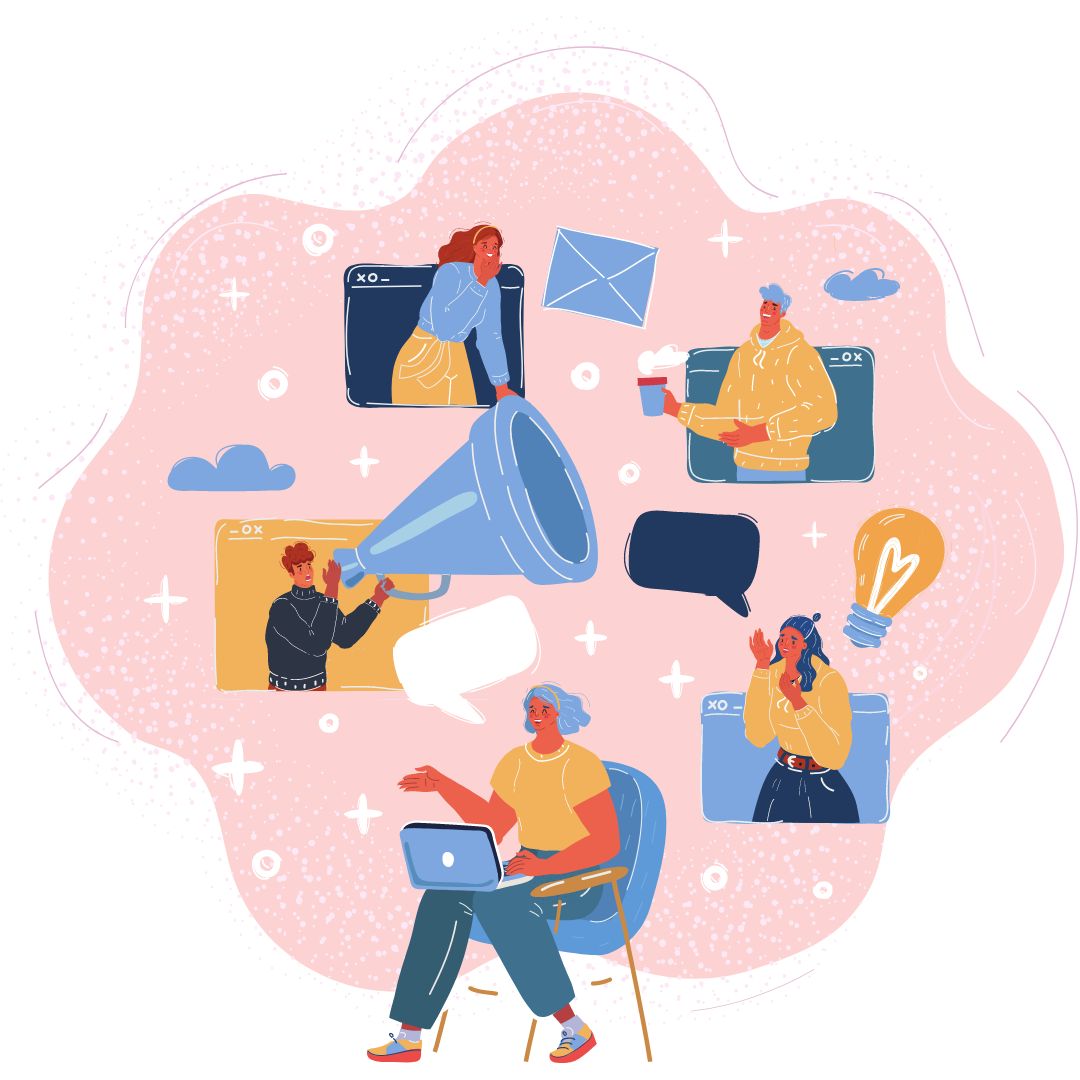
We covered:
- What is a communications strategy? (and how is it different from ‘strategic communications’?) What is the point of it?
- What is the minimum that any communications strategy should cover, and what is the menu of options if one wants to be a bit more ambitious?
- Hearing from two LGBTI organisations who have gone through a communications strategy process recently – and what they learned from their experience. Check the experience of the Newcomers project (Sweden) and Transakcija (Slovenia)!
You might want to check other comms resources by ILGA Europe:
- 9 Steps to a Good Communications Plan (Hub card):https://hub.ilga-europe.org/communications/9-steps-to-a-good-communications-plan/ know where to start? Reach out to us, we might be able to help! Contact svetlana@ilga-europe.org.
- Useful communications for LGBTI-activists: take it to a new level (SkillsBoost recording): https://www.youtube.com/watch?v=YX3U-4KG5xY
- to be published Communications Strategies for Small Organisations (a Hub card): https://hub.ilga-europe.org/communications/communications-strategies-for-small-organisations/
Do you struggle with some specific communications challenge, and do not know where to start? Reach out to us, we might be able to help! Contact svetlana@ilga-europe.org
Skills Boost: Useful communications strategies for LGBTI activists
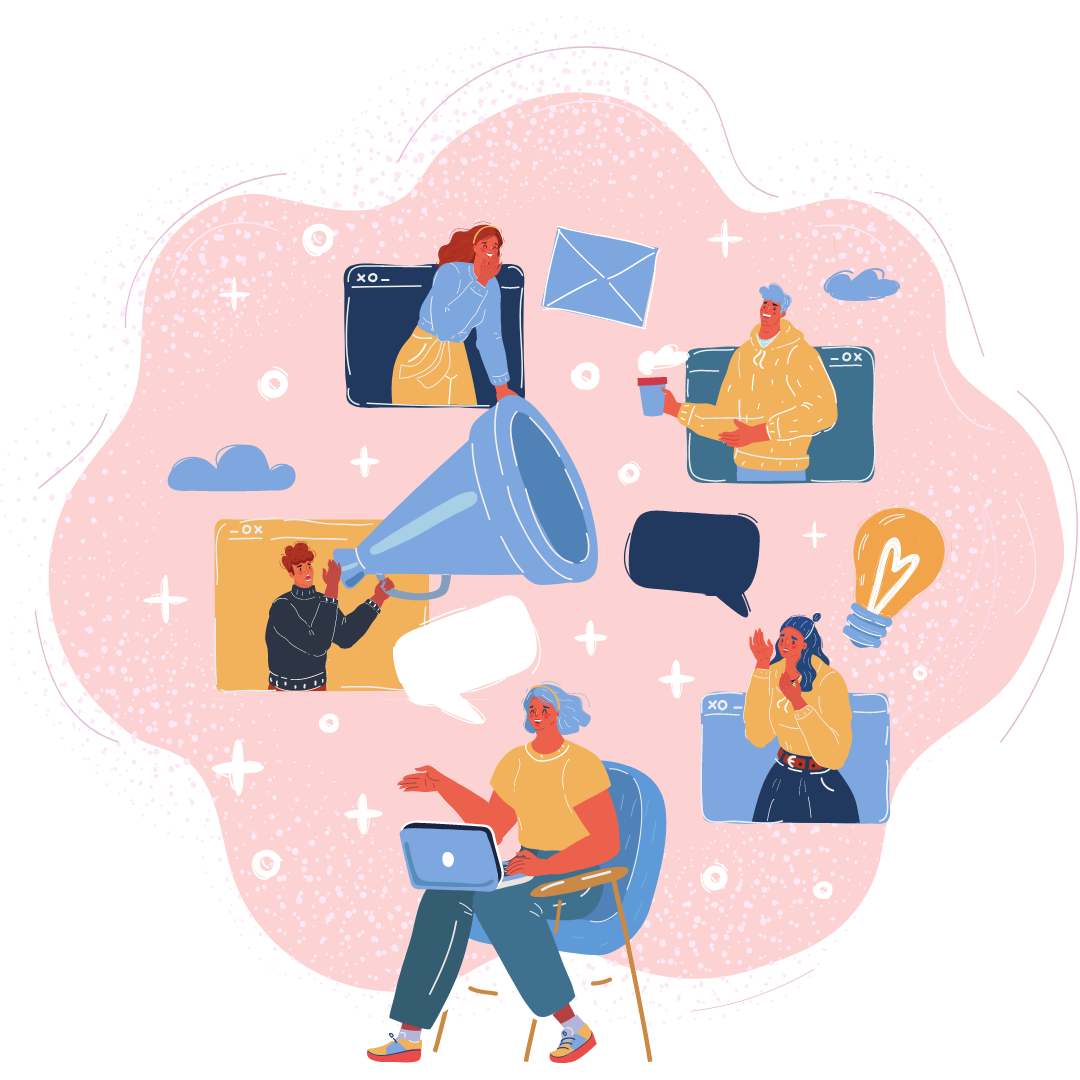
Register here to join us at 12:00 CEST (noon), Wednesday 3 April for a Skills Boost session designed for LGBTI activists who want your organisational communications to get a bit more strategic. The session will last 90 minutes.
We will cover:
- What is a communications strategy? (and how is it different from ‘strategic communications’?) What is the point of it?
- What is the minimum that any communications strategy should cover, and what is the menu of options if we want to be a bit more ambitious?
- Hearing from two LGBTI organisations who have gone through a communications strategy process recently – and what they learned from their experience.
- A small assignment to help you get started – if you complete it then you will be invited to the follow-up session at 12:00 CEST (noon), Wednesday 17 April where you can get individual feedback from our experts and each other and go deeper.
Register here to join the session on April 3rd.
Register here to join the session on April 17th.
Did you miss this session? Find the recording and some additional materials to look at below!
You might want to check other comms resources by ILGA Europe:
- Useful communications for LGBTI-activists: take it to a new level (Skills Boost recording): https://youtu.be/YX3U-4KG5xY
- Communications Strategies for Small Organisations (a Hub card): https://hub.ilga-europe.org/communications/communications-strategies-for-small-organisations/
- 9 Steps to a Good Communications Plan (Hub card): https://hub.ilga-europe.org/communications/9-steps-to-a-good-communications-plan/
Do you struggle with some specific communications challenge and do not know where to start? Reach out to us, we might be able to help! Contact svetlana@ilga-europe.org.
Call for participants: Solidarity and Skills for Communicating through Crisis
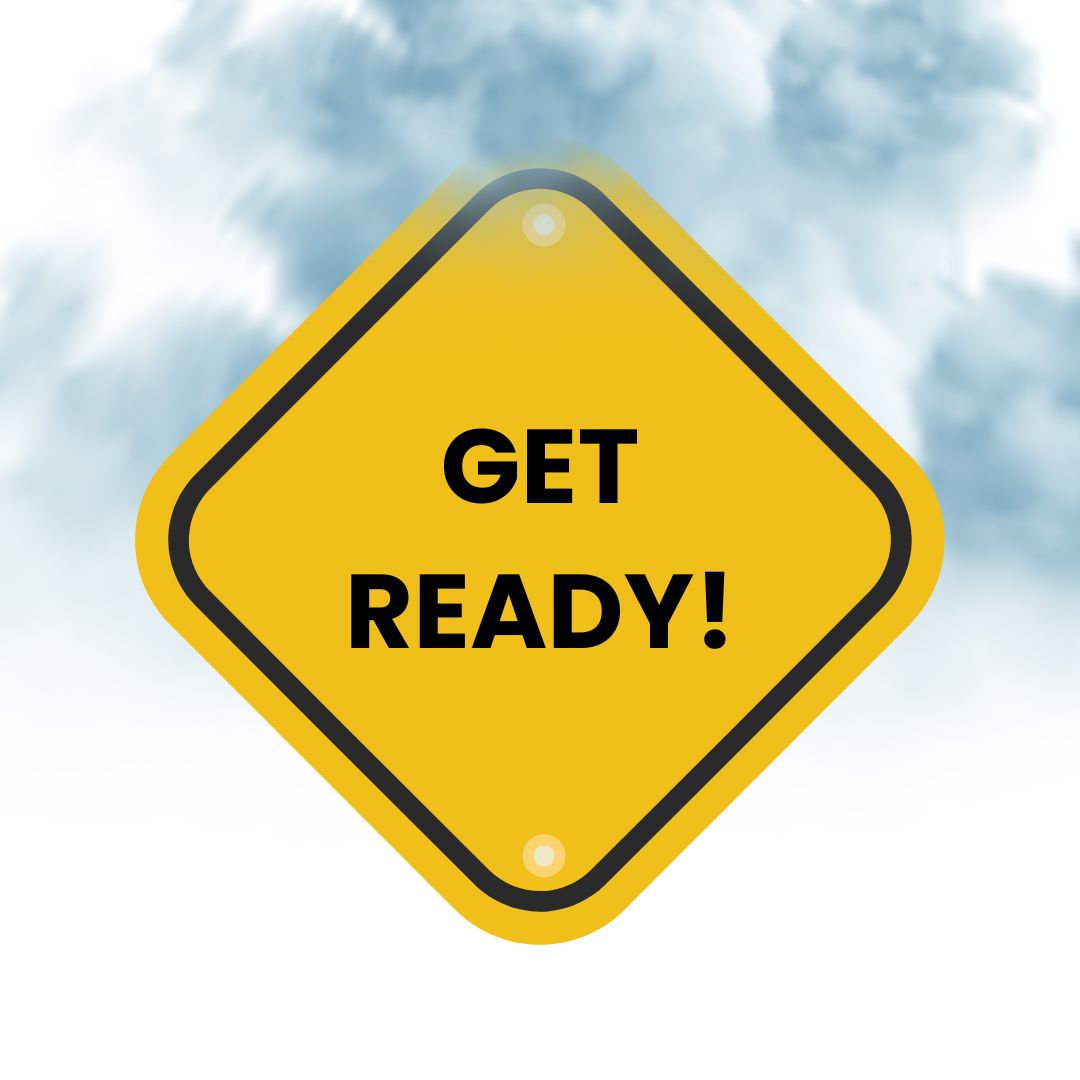
About Get Ready!
Get Ready! is a 2-day ILGA-Europe learning event on crisis communications for LGBTI organisations in Europe and Central Asia. It will take place on 3-6 May, 2024.
By working with LGBTI movements in Europe and Central Asia, we learned that crisis communications support is a priority for many LGBTI organisations and groups in the region. We know that this year might bring new challenges for the movement. And we know that many of you are already strategising and looking into ways to stay resilient.
This learning event on crisis communications will support your organisation in preparing for specific challenges or potential disruptions related to the activities you’ve planned or foresee this year.
What you will get from the training:
- Deeper understanding on what is a communications crisis, and how your team can prepare for one.
- Experience: solidarity scenario-based exercise that will help to learn by doing.
- Deeper understanding of the challenges other organisations face and ways to deal with them.
The programme will be shared with selected participants closer to the event. Here is what you can expect it to cover:
- A chance to share the communications threats that worry you in a supportive and private environment with your peers, to be listened to, and to have supportive advice and coaching on ideas for you to implement.
- A scenario-based exercise on crisis comms that ILGA-Europe designed and piloted with a group of grantee partner organisations in 2023. In this safe, supportive scenario exercise we will roleplay together a response to a developing communications crisis based on the experiences of LGBTI activists. We will facilitate and give tips about Preparation, Monitoring, Escalation, Diagnosis, and Response, but what you choose to do is up to you. Because it is better to practise in private than be unprepared in public.
- Discussions on solidarity in crisis communications. We believe that in crisis communications solidarity and connectedness are especially important: we are often affected by each other’s communications, and peer solidarity and amplification can make our individual crisis responses more impactful.
- Signposting to further resources and the potential of more follow-up coaching after the gathering.
- Networking and mutual learning with a group of 25 LGBTI activists from across Europe and Central Asia.
At the event, we will focus on the external communications aspects of crisis situations or disruptions to our activism. Please note that working through security aspects (safety, cybersecurity, internal communications, etc) won’t be prominently featured in this event’s programme.
Practical details
Dates: 3-6 May, 2024
- 3 May: arrival
- 4-5 May: full-day event programme, with joint dinner on 4 May
- 6 May: departure. Please note that departure in the evening of 5 May is also possible provided that you attend the whole event.
Language: English
Number of participants: 25
Location: Location will be shared with selected participants[1]. In choosing the location, we were guided by visa regime, availability of decent travel itineraries for participants from across Europe and Central Asia, past experience of ILGA-Europe and our members in organising events there, as well as consultation with local activists.
Costs:
- ILGA-Europe will arrange accommodation in shared rooms with breakfast with arrival on 3 May and departure on 6 May for all participants;
- The programme will include joint lunches on 4-5 May, organised by ILGA-Europe, as well as a joint dinner;
- Per diem offered in cash at the event will cover the rest of the meals and subsistence on 3-6 May;
- Travel costs will be reimbursed by ILGA-Europe after the event, upon full attendance. Once your participation is confirmed, you will need to arrange your travel within the budget parameters of the event. Participants coming from organisations working without any funding and therefore unable to pre-book tickets for their delegates can be exempt from this requirement. More information will be shared with participants once the selection is made.
Accessibility:
- We aim at ensuring that this event is accessible for everyone in attendance. Please share your accessibility needs in the application form so that we can take them on board.
Trainers and facilitators
- Svetlana Zakharova, Senior Programmes Officer, ILGA-Europe
Before joining ILGA-Europe, Svetlana Zakharova worked with the Charitable Foundation Sphere and the Russian LGBT Network as a communications officer. Within ILGA-Europe, Svetlana coordinates the Strategic Communications programme.
- Sho Walker Konno, Strategic Communications Consultant for ILGA-Europe
Sho Walker-Konno is a communications coach for activists. He has coached activists in 70+ countries, for the past four years specialising in advising reproductive justice and LGBTI groups dealing with the ‘anti-gender’ opposition.
Who is invited to apply
LGBTI organisations and groups from across Europe and Central Asia are invited to join by delegating a participant to apply for this event.
Get Ready! is meant for your organisation if:
- Your organisation/group is based and works in Europe and Central Asia[2] and needs to build its capacity to run crisis comms in connection to specific planned activities and/ or foreseen external challenges in 2024;
- The foreseen challenge and case that you are coming to the event with is concrete and real: it can be anything from a challenging first Pride festival in a non-capital city that you or another organisation is hosting later this year, to national elections that are expected to stir anti-LGBTI sentiments;
- You can explain why your organisation expects these challenges to emerge and how new knowledge and skills can mitigate the risks;
- Your organisation and you already have some experience in or exposure to crisis communications. We do not expect any extensive expertise but rather some past experience where your organisation needed to engage in crisis comms, whether successfully or not (it can be as simple as experience of working with negative comments online);
- Your organisation has the capacity to follow up on the event and integrate new knowledge in its work; you, as the delegated participant, are supported by your organisation to dedicate time to the event, attending it in full, and to bring the knowledge back to the team.
For Get Ready! to be a truly enriching experience, we aim at bringing together a pool of diverse participating organisations and activists in terms of profiles, identities, experiences, and geography. To make sure that there is a diversity of experiences, we invite a maximum of one person from an organisation or group to apply.
How to apply
To apply, you need to complete and submit the application form to Svetlana Zakharova at svetlana@ilga-europe.org by March 10, 2024, midnight (CET). Please indicate the title of the event (Get Ready!) in the subject line.
All applicants will be informed about the outcomes of the selection process on March 20 the latest.
If you have any questions about Get Ready!, do not hesitate to reach out to Svetlana via svetlana@ilga-europe.org
[1] If the location affects your decision to apply, please contact Svetlana Zakharova (svetlana@ilga-europe.org), and we will let you know privately the location.
[2] For this call Europe and Central Asia is considered to include the following countries: Albania, Andorra, Armenia, Austria, Azerbaijan, Belarus, Belgium, Bosnia and Herzegovina, Bulgaria, Croatia, Cyprus, Czech Republic, Denmark, Estonia, Finland, France, Georgia, Germany, Greece, Hungary, Iceland, Ireland, Italy, Kazakhstan, Kosovo, Kyrgyzstan, Latvia, Liechtenstein, Lithuania, Luxembourg, Malta, Monaco, Montenegro, Netherlands, North Macedonia, Norway, Poland, Portugal, Republic of Moldova, Romania, Russian Federation, San Marino, Serbia, Slovak Republic, Slovenia, Spain, Sweden, Switzerland, Tajikistan, Turkey, Turkmenistan, Ukraine, United Kingdom and Uzbekistan.
Skills Boost: How to avoid instrumentalisation and communicate without playing into polarisation?
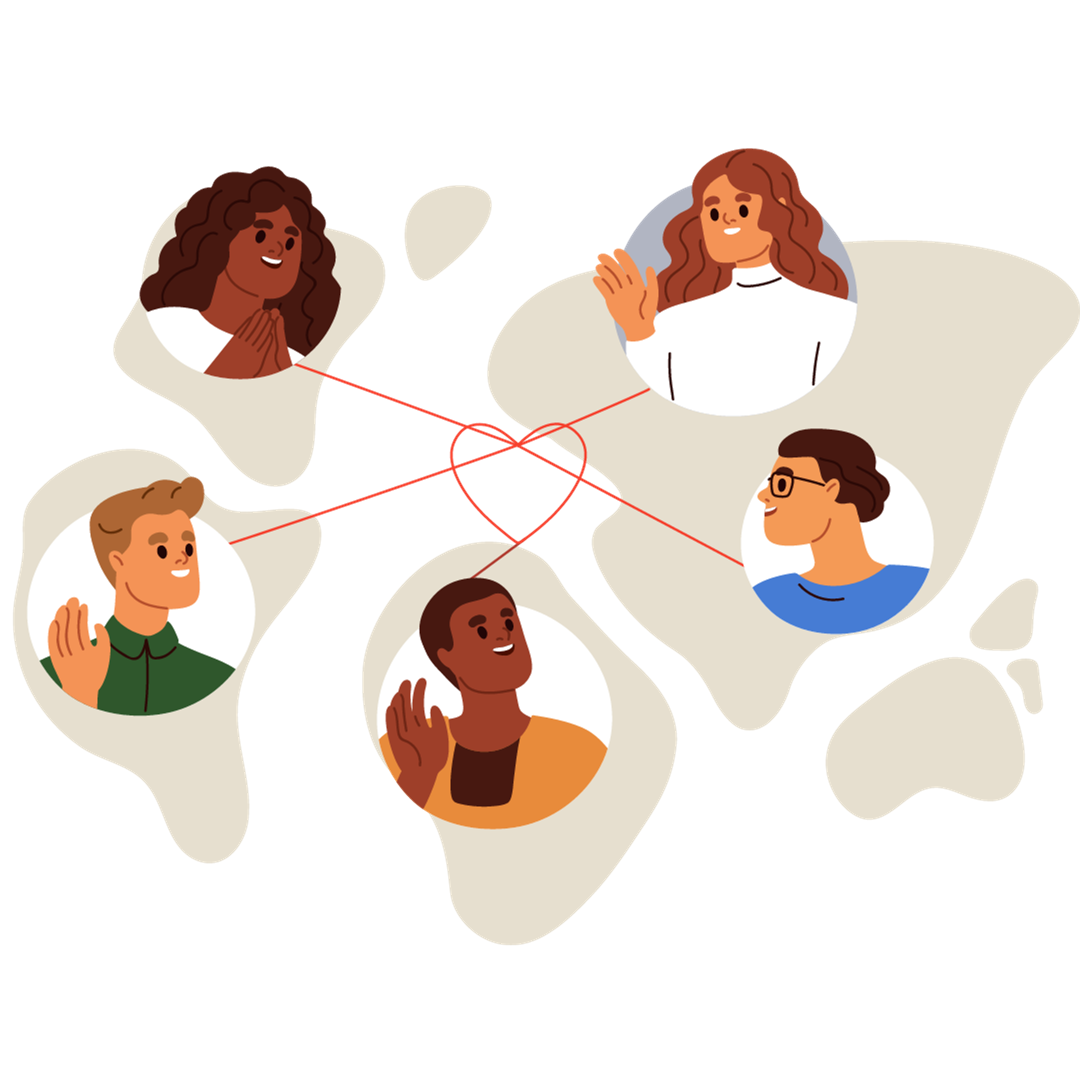
All over Europe and Central Asia, LGBTI people are used by different political players to gain power. Our opponents create and feed harmful and dangerous narratives about us and our struggles. Is it possible to communicate with our target audiences without playing their rules and not feeding into their narratives?
To explore this topic, we invited three amazing activists to talk about their experiences. You can get the insights about the strategies used in Hungary, where Háttér Society used the so-called “anti-LGBT Referendum” to talk to their allies and in Spain, where La Intersession successfully campaigned for the rights of trans people and even prepared a guide: How we can change trans narratives collectively.
Speakers:
- Alberto Abellán, La intersección, Spain
- Javier Vaquero, La intersección, Spain
- Luca Dudits, Háttér Society, Hungary
Effective campaigns in support of LGBTI rights: How to avoid instrumentalisation and communicate without playing into polarisation?

All over Europe and Central Asia, LGBTI people are used by different political payers to gain the power. Our opponents create and feed harmful and dangerous narratives about us and our struggles. Is it possible to communicate with our target audiences without playing their rules and not feeding into their narratives?
Join this online session to learn how to proactively and effectively communicate while not playing into populist narratives that feed polarisation. You will get the first-hand insights about the strategies used in Hungary, where Háttér Society used the so-called “anti-LGBT Referendum” to talk to their allies and in Spain, where La Intersession successfully campaigned for the rights of trans people and even prepared a guide: How we can change trans narratives collectively.
Speakers:
- Alberto Abellán, La intersección, Spain
- Javier Vaquero, La intersección, Spain
- Luca Dudits, Háttér Society, Hungary
The session will take place online on 13 December at 13:00 CET. You can register to join the event here.
Did you miss this session? Find the recording and some additional materials to look at below!
Skills Boost: Media interview practice
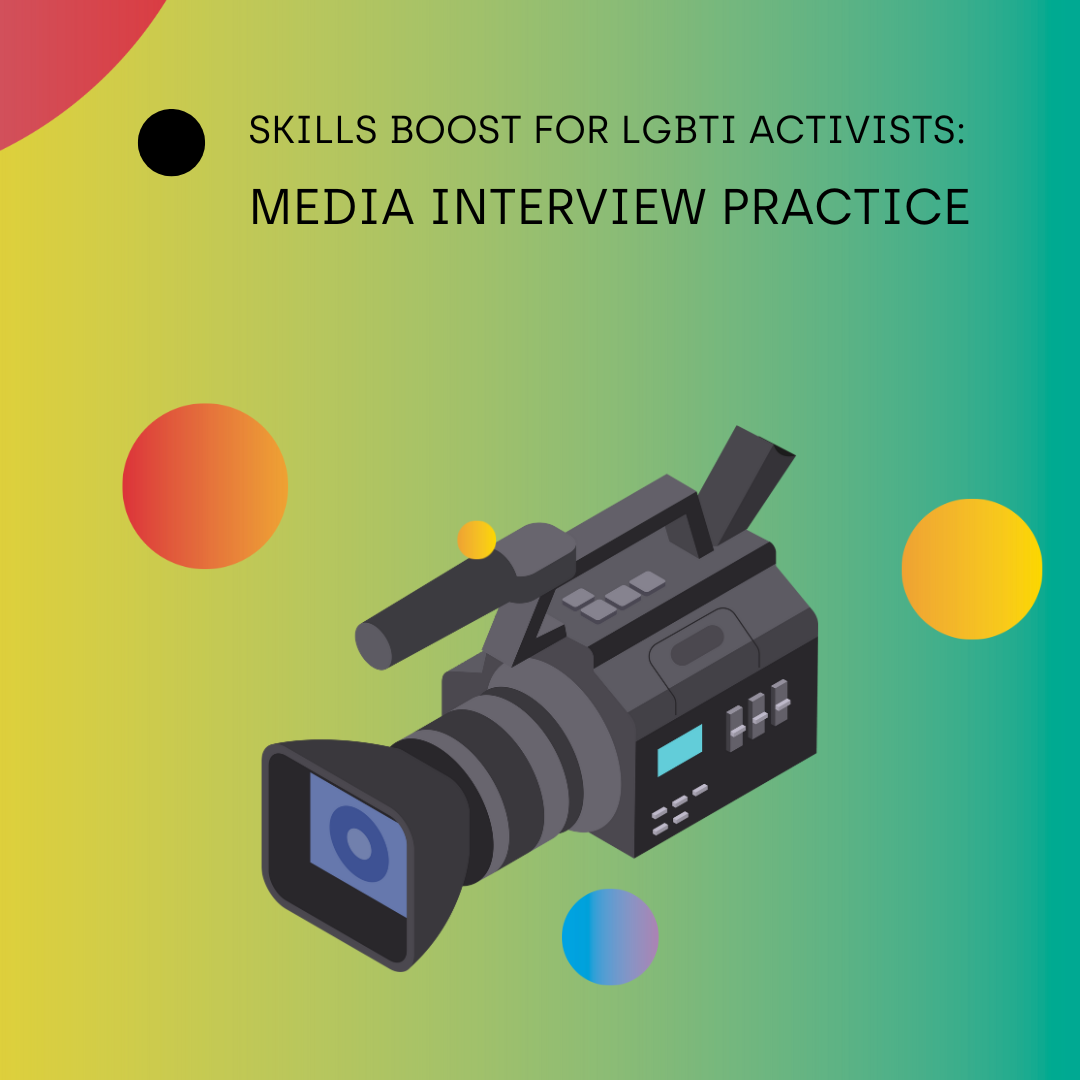
Are you nervous about how to get your message across in TV interviews, or even whether you should accept the interview in the first place?
On September 5, 2023, we held a Skills Boost session specifically designed for LGBTI activists to prepare for and be more confident in their media appearances. This beginner-friendly session focuses on TV interviews (although most of the learning is suitable for other public spokesperson scenarios), with examples and testimonies from LGBTI activists.
We covered:
- The strategy behind participating (or not) in TV interviews and preparing effective messaging.
- Technical tips on different types of TV interviews (live, pre-recorded, studio, online, etc) and what you might need to do differently.
- Dealing with difficult questions, and taking care of yourself/colleagues’ wellbeing.
- Those who did the preparation assignment had chance to face a personalized practice interview in a follow-up session.
You might want to check other comms resources by ILGA Europe:
- How to Build Strong Media Relationships (a Hub card): https://hub.ilga-europe.org/communications/how-to-build-strong-media-relationships/
- Skills Boost on Media Relations for LGBTI Activists: https://www.youtube.com/watch?v=sX85hEKUWOw
- LGBTI Activism 101: Connecting with the Media (a blog post): https://www.ilga-europe.org/blog/lgbti-activism-101-connecting-with-the-media/
Do you struggle with some specific communications challenge, and do not know where to start? Reach out to us, we might be able to help! Contact svetlana@ilga-europe.org
From numbers to stories: How LGBTI activists can use data visualisation

In our last Skills Boost session, over 70 LGBTI activists learnt how to find and tell a story from the data that speaks about their own work. Take a look at the impressive charts developed as part of the session and learn more about how to use data visualisation in your daily communications.
In today’s visually-driven world, communicating with images is more important than ever. That’s why LGBTI activists are seeking ways to transform complex figures and dry data into visual representations that tell a captivating story.
To support them in their mission, in May we hosted a Skills Boost session focused on data visualisation. The response was enthusiastic, with over 70 LGBTI activists from across Europe participating in the workshop. Using data from our Rainbow Map & Index and with no previous design skills, the participants unleashed their creativity and harnessed the power of visualisation to craft their own compelling charts.
The first half of the session opened with our facilitators sharing some advice from Minami Funakoshi, a non-binary awarded graphics journalist for Reuters:
“Instead of starting with the data and trying to find the story in it, you treat data as something that can help explain a question”.
Funakoshi’s visual story on Gender and Language has received several prize nominations and awards, and it served as an inspiration for ways of thinking of data beyond numbers.
During the rest of session, participants generously shared these important tips with one another:
- Finding the data – Participants shared ways of extracting data from owned sources but also from open sources like Our World in Data, the FRA LGBTI survey , and alternatives like Google Trends.
- Finding the story – Our Senior Communications Officer, Mehmet Akin shared his experience filtering through a vast data set of criteria across 49 countries in ILGA-Europe’s 2023 Rainbow Map and Index in order to tell a coherent story in 2023, and what other stories they thought might still need to be told.
- Creating the visual – Activists examined the pros and cons of tools like Tableau, Adobe Express, and Canva. They also learnt from a live crowd-sourced demonstration of how we could make a draft graphic in ten minutes using the Rainbow Map data for graphics showing either comparisons, or trends. Check out the templates provided during the session here and here.
Using our Rainbow Map & Index to learn data visualisation
Our Rainbow Map is a benchmarking tool of the laws and policies that have a direct impact on LGBTI people’s human rights. From the collected data we show the situation in 49 countries under 74 and in seven categories. However, the data can be presented in many other ways. We asked the Skills Boost participants to find and tell the following stories:
- Show the journey of the UK from No ‘1 to No ’17: The United Kingdom was the No.1 country on the ranking in 2013 but has fallen to No.17 by 2023. This is a story that is captured by many followers of ILGA-Europe on social media but has never been visualised. All the data is available as to why at this link.
- Show countries with self-determination based LGR for trans people in Europe: Self-determination is only available in 11 countries in Europe and can easily be seen on our interactive module by choosing “All countries” and “Self-determination” in the Rainbow Map dropdown menu. There is a good example of data visualisation of this story here.
- Create a timeline with IGM bans in Europe: There are only six countries that have banned IGM so far, which can be seen here. It would be interesting to see these bans in a timeline. Similar thing could be done with bans on conversion practices.
- Re-chart the Map based on different categories: We do our country ranking based on the total score that is calculated under seven categories. However, the online module shows a menu where you can choose a different category and gets a new ranking based on your selection. For example, Montenegro is 12th place in the overall ranking. However, if you choose “Legal gender recognition” as category, you’ll see they’re on the 30th place.
Our Skills Boost participants delivered wonderful visualisations
At the end of the first half of the Skills Boost session, we invited the participants to work on their own graphics and send them to us, and three people took the challenge! Two used data from ILGA-Europe’s Rainbow Map and one used the EU Fundamental Rights Agency’s LGBTI Survey results.
Jae, whose association collaborates with a shelter house for trans people, wanted to explore the experience of having housing difficulties across the LGBTQIA+ community in Europe. This is what Jae said:
“I used the data from the EU LGBTI Survey II and I found lots of interesting things. I focused on the broad concept of having experienced housing difficulties, without differentiating right now between more mild events (having to sleep at a friend’s place) and more extreme cases (sleeping in a public space). I could have stopped there, but I also thought to underline a worst-case scenario, in this instance Sweden, the worst country for LGBTI people and for some of the surveyed categories when it comes to this problem”.
Jochem Verdonk from Principle 17 (a collective of activists from the Netherlands that promotes customised trans* health care) designed four graphics to illustrate the Human Rights Situation of LGBTI People in the Netherlands.
He started with a data graphic with all seven categories in one graphic, but “that turned out to be quite chaotic”.
So he decided it’s better to make three separate data graphics with similar tendencies.
After ILGA-Europe’s team and guests’ feedback in the second half of the session, Jochem tried several alternatives but decided to keep the graphics the way they were. However, he did make the lay-outs of the several images more equal by using the same fonts, sizes and lay-out. He also decided to separate the Intersex Bodily Integrity into another graphic, to emphasize the complete lack of rights. He even published an article about the deterioration of LGBTI people’s rights in the Netherlands attaching all the graphics. Have a look!
Bart Andersen from Britain decided to use infographics to:
“Remind ourselves that no country should take human rights for granted, that they are all won with effort and can de-evolve, or develop quickly”
Bart also wanted to “point to countries that Britain and others perceive as not advanced on human rights but which are actually overtaking,” as well as to undermine the narrative of Britain’s Conservative party when it presents itself as an advocate of LGBTQ+ rights”.
Bart was curious if the events path would be nicer in another slide of the same project. And if he shall remove all notes and let the reader do some independent investigation?
Want to stay in touch and learn more about communications for LGBTI activists? Join our closed Communications support group for LGBTI activists on Facebook and check our Resource Hub. There you can also find resources from our previous sessions on crisis communication, how to make home-made campaign videos, making graphics with free tools, and fundraising during crises.
Skills Boost: Media interview practice

Register here to join us at 12:00 noon CEST, Tuesday 5 September for a Skills Boost session specifically designed for LGBTI activists to prepare for and be more confident in your media appearances.
The session will be beginner-friendly and focus on TV interviews (although most of the learning will be suitable for other public spokesperson scenarios), with examples and testimonies from LGBTI activists from across Europe and Central Asia, in particular:
- The strategy behind participating (or not) in TV interviews and preparing effective messaging.
- Technical tips on different types of TV interviews (live, pre-recorded, studio, online, etc) and what you might need to do differently.
- Dealing with difficult questions, and taking care of yourself/colleagues’ wellbeing.
- Those who do the preparation assignment will have a chance to face a personalised practice interview in a follow-up session on Tuesday 26 September.
The first session of media interview practice for LGBTI activists will take place at 12:00 noon CEST, Tuesday 5 September.
The second session of media interview practice for LGBTI activists will take place at 12:00 noon CEST, Tuesday 26 September.
Did you miss this session? Find the recording and some additional materials to look at below!
